Day :
Keynote Forum
Haval Shirwan
University of Louisville, USA
Keynote: Apoptosis as an effective means of inducing tolerance to pancreatic islets for the treatment of type 1 diabetes
Time : 09:25-09:50
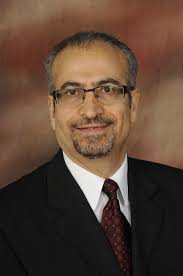
Biography:
Haval Shirwan is Dr. Michael and Joan Hamilton Endowed Chair in Autoimmune Disease, Professor of Microbiology and Immunology, Director of Molecular Immunomodulation Program at the Institute for Cellular Therapeutics. He conducted his Graduate studies at the University of California in Santa Barbara, CA, and Postdoctoral studies at California Institute of Technology in Pasadena, CA. He joined the University of Louisville in 1998 after holding academic appointments at various academic institutions in the United States. His research focuses on the modulation of immune system for the treatment of immune-based diseases with particular focus on type 1 diabetes, transplantation, and development of prophylactic and therapeutic vaccines against cancer and infectious diseases. He is an inventor on over a dozen of worldwide patents, widely published, organized and lectured at numerous national/international conferences, served on study sections for various federal and non-profit funding agencies, and is on the Editorial Board of a dozen of scientific journals. He is member of several national and international societies and recipient of various awards.
Abstract:
Type 1 diabetes (T1D) is an autoimmune disease initiated and perpetuated by T cells targeting various autoantigens expressed by insulin producing beta cells, thereby setting off a serious of immunological reactions that result in the destruction of beta cells, insulin deficiency, and hyperglycemia. Insulin treatment as standard of care is often ineffective in preventing recurrent hyperglycemic episodes with subsequent development of micro and macroangiopathic lesions and the development and progression of chronic complications. Pancreatic islet transplantation has proven effective in improving metabolic control/quality of life and preventing severe hypoglycemia in patients with T1D. Immune rejection, however, severely limits broad application of islet transplantation, irrespective of chronic use of immunosuppression and its sequelae. Therefore, novel approaches that control rejection in the absence of chronic immunosuppression will have significant impact on the field of islet transplantation. T-cells are the primary culprit of islet graft rejection. As such, control of T cell responses has the potential to induce tolerance and treatment of T1D. T cells upregulate Fas receptor and become sensitive to Fas/FasL-mediated killing. Therefore, Fas-mediated apoptosis has great potential to serve as an effective means of inducing transplantation tolerance. Using a novel form of FasL protein with improved apoptotic activity, we have demonstrated the utility of this concept for the induction of tolerance to allogeneic as well as xenogeneic pancreatic islets in preclinical rodent experimental models.
Keynote Forum
Paul J. Davis
Albany Medical College, USA
Keynote: Anti-Apoptotic Actions of Thyroid Hormone in Cancer Cells may limit Effectiveness of Chemotherapy
Time : 08:30-08:55

Biography:
Davis is a graduate of Harvard Medical School and had his postgraduate medical training at Albert Einstein College of Medicine and the NIH. His academic positions have included Chair, Department of Medicine, Albany Medical College. He has served as President, American Thyroid Association, as a member of the Board of Directors of the American Board of Internal Medicine and he is Co-Head, Faculty of 1000 – Endocrinology. He serves on multiple Editorial Boards of His scientific interests include molecular mechanisms of actions of nonpeptide hormones, particularly, thyroid hormone. He and his colleagues described the cell surface receptor for thyroid hormone on integrin ï¡vï¢3 that underlies the pro-angiogenic activity of the hormone and the proliferative action of the hormone on cancer cells. He has co-authored more than 200 original research articles and 30 textbook chapters and he has edited three medical textbooks.
Abstract:
Thyroid hormone as L-thyroxine (T4) is anti-apoptotic at physiological concentrations in a number of cancer cell lines. Among the mechanisms of anti-apoptosis activated by T4 are interference with Ser-15 phosphorylation (activation) of p53 and with TNFï¡/Fas-induced apoptosis, as well as decreased cellular abundance of caspases and of BAX. Such actions of T4 may oppose pharmaceutical anti-apoptotic strategies. The anti-apoptotic effects of thyroid hormone largely are initiated at a cell surface thyroid hormone receptor on integrin ï¡vï¢3. The integrin is amply expressed and activated in cancer cells, but not in nonmalignant, nondividing cells. Nanoparticulate tetraiodothyroacetic acid (Nanotetrac) opposes actions of thyroid hormone initiated at ï¡vï¢3 (PJ Davis, Ann Rev Pharmacol Toxicol 51:99-115, 2011). We have studied the effects of Nanotetrac (10-7 M) in vitro on expression of a panel of apoptosis-relevant cancer cell genes in human breast cancer MDA-MB-231 (AB Glinskii et al., Cell Cycle 8:3562-3570, 2009) and human medullary thyroid carcinoma (mTC, CRL-1803) (M Yalcin et al., J Clin Endocrinol Metab 95:1972-1980, 2010) cell lines. CASP2, MCL2L14, DFFA, BAD and Bcl-Xs are pro-apoptotic genes whose expression was stimulated by Nanotetrac; XIAP and MCL1 are anti-apoptotic genes and their transcription in tumor cells was downregulated by Nanotetrac. Nanotetrac blocked the anti-apoptotic action of thyroid hormone in a stilbene-induced model of apoptosis in glioma cells. Thus, thyroid hormone (T4) is an endogenous anti-apoptotic factor that may oppose chemotherapy-induced apoptosis in ï¡vï¢3-expressing cancer cells. These actions of T4 have been blocked in vitro by Nanotetrac and rationalize medical induction of euthyroid hypothyroxinemia. \\r\\n\\r\\n
Keynote Forum
Diana Anderson
University of Bradford, United Kingdom
Keynote: DNA damage in lymphocytes from healthy individuals and respiratory disease patients, treated ex vivo/in vitro with aspirin and ibuprofen nanoparticles compared to their bulk forms
Time : 08:55-09:20
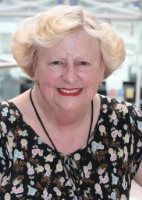
Biography:
Professor Diana Anderson completed her PhD in the Faculty of Medicine, University of Manchester, UK. She currently holds the Established Chair in Biomedical Sciences at the University of Bradford. She has published over 450 papers and eight books. She has served on 10 editorial boards, has supervised 30 PhD students and is Editor- in- Chief of the Book Series “Issues in Toxicology†for the Royal Society of Chemistry. She has hosted and participated in 56 meetings for the WHO on Chemical Safety. She has been a Vice President of the Institute of Biology.
Abstract:
\\r\\n
- Workshop
- Workshop on stem cells in glomerular repair: Present status, challenges, and future expectations
Location: Vienna Room
Chair
Guillermo A Herrera
Louisiana State University Health Sciences Center
Louisiana
Session Introduction
Guillermo A Herrera
Louisiana State University Health Sciences Center
Louisiana
Title: Generic glomerular damage viewed through a unique experimental model: Understanding the repair that needs to be accomplished. What we know and what we need to find out
Time : 09:20-09:45
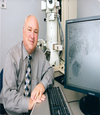
Biography:
Abstract:
Mesangial injury represents a crucial event in the pathogenesis of light chain-associated glomerulopathies in patients with plasma cell dyscrasias. The glomerulopathic light chains interact with mesangial cells where purported receptors regulate the downstream cellular mechanisms that will be activated and result in glomerular alterations. The physicochemical and conformational characteristics of the abnormal light chains are primarily responsible for the downstream events affecting the mesangial milieu. Different light chains are responsible for two diseases with diametrically opposite mesangial alterations: Light chain deposition disease which results in the expansion of the mesangium due to accumulation of matrix proteins not present in the normal mesangium and AL (light chain-associated) amyloidosis where the native mesangial matrix is replaced by fibrils (amyloid). In both cases there is enhancement of mesangial cell apoptosis and the altered mesangium has a marked decreased of mesangial cells, most undergoing apoptosis. The repair of the damaged mesangium is difficult due to the absence of enough mesangial cells that can participate in the process and also the damage can be so extensive that the intrinsic processes that are available for repair (i.e. recruitment of stem cells from bone marrow and precursor stem cells in renal niches) cannot effectively carry out the recovery. Introducing exogenous mesenchymal stem cells represents a novel therapeutic avenue that has been experimentally tested with promising results. Glomerular repair is hindered by how much of the glomerulus has become sclerosed and how to re-establish capillary walls and spaces in segmentally sclerosed / hyalinized glomerular areas. Disposing of the sclerotic material represents a major challenge for repair mechanisms to be able to restore homeostasis. In-vitro, ex-vivo and in-vivo animal models have been created to study these disorders providing excellent platforms to elucidate pathogenesis and provide insightful information that can be translated to the practice of renal pathology, as the in-vitro and in-vivo platforms corroborate each other. The presentation will address how mesangial injury occurs in LCDD and AL-amyloidosis as examples of generic mesangiopathies. Other presentations in the symposium will summarizes existing data regarding the niches of stem cells that participate in glomerular homeostasis and repair and experimental use of exogenous mesenchymal stem cells in mesangial healing.
Paola Romagnanin
Meyer Childrens Hospital
Italy
Title: The renal parenchymal niches of progenitor cells and glomerular repair
Time : 09:45-10:10
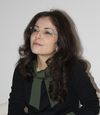
Biography:
Paola Romagnani was born in Florence, Italy, in 1970. She graduated at the School of Medicine and Surgery, University of Florence in 1995 and obtained her PhD in 2001. In 1999, she has won the Hoechst Marion Roussel Foundation Award as best young Italian scientist. From 2006 she is Associate Professor of Nephrology and from 2009 Chair of Nephrology and Director of the Specialty School of Nephrology of the University of Florence. From 2010, she is Head of the Nephrology and Dialysis Unit at the University Hospital Meyer, Florence. She has published more than 140 manuscripts in international peer-reviewed journals. Her studies received over 10000 citations. In 2007, she has won the European Research Council Starting Grant Investigator Award. From 2008 to 2011 she coordinated a Cooperative European Project of the FP7 Program. From 2011 she is Ambassador of the European Commission for the Programme “Youth on the moveâ€. From 2012 she is included in AcademiaNet, the database of excellent female scientists organized by Robert Bosch Stiftung’s foundation in collaboration with Nature. In 2014 she has won the European Research Council Consolidator Grant Award.
Abstract:
Kidney disorders represent a major global health issue. In the last few years, studies performed in mammalian kidney supported the existence of renal progenitors with the potential to regenerate glomerular as well as tubular epithelial cells. Indeed, renal progenitors (RPC) have become a key player in the pathogenesis of kidney disorders, and their study is increasing knowledge about the mechanisms of kidney response to injury. Renal progenitors were first identified in human, where they localize within the Bowman's capsule as well as along the tubular compartment. Lineage tracing of the murine renal progenitor system following injury has shown that the outcome of glomerular disorders may depend from a balance between injury and regeneration. Indeed, factors that promote progression of renal disorders, like proteinuria, impair renal progenitors growth and differentiation, thus blocking regenerative processes. Consistently, use of drugs that stimulate renal progenitors growth or differentiation exert protective effect on renal function and restore kidney tissue integrity. From all these findings it appears clear that understanding of how self-renewal and fate decision of renal progenitors may be perturbed will be of crucial importance and that RPC represent novel therapeutic targets to improve podocyte regeneration and disease regression.
Jiamin Teng
Louisiana State University Health Sciences Center
Louisiana
Title: Experimental platforms to address mesangial repair: What has been accomplished
Time : 10:10-10:35
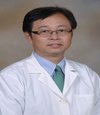
Biography:
Abstract:
The human kidney has about 500 000 nephrons made up of different cell types. Mesangial cells (MCs) and the mesangial matrix were first described in the mid-nineteenth century, as important components of a region called glomerular mesangium . As normally smooth muscle phenotype cells, mesangial cells are strategically located, directly involved in biological phenomena governing renal embryology, physiology and pathology. Many pathologic glomerular processes begin and are centered in mesangial areas. Immunoglobulin light chains producing glomerular damage (so-called glomerulopathic light chains) interact with mesangial cells resulting in different pathological events. Focused on mesangial repair and restoration of the mesangium after homeostasis has been altered, various experiment models including in vitro, ex vivo and in vivo have been used.in our laboratory in the last 30 years. The most recent animal models have recreated the various mesangiopathies that are characteristic of glomerulonephritis. These experimental platforms have allowed us to correlate in-vitro data with animal results and have shown that the sequence of events participating in the pathological processes are identical. Each platform offers specific advantages and disadvantages to answer different questions. The talk will address these and will highlight the value of each of the research platforms. Combining the data that has been obtained has resulted in a full appreciation of what is involved in the genesis of the mesangial damage. The use of stem cells to repair and restore the damaged mesangium has provided insights into how mesenchymal stem cells do so offering a promising new therapeutic avenue to treat conditions such as diabetic nephropathy and thrombotic microangiopathies among others.
Elba A Turbat-Herrera
Louisiana State University Health Sciences Center
Louisiana
Title: Induced pluripotent and mesenchymal stem cells: Exogenous participation for glomerular
Time : 10:50-11:15

Biography:
Abstract:
The study of stem cells is a growing field in which these are used to repopulate, therefore, repair damaged tissues. Many studies have been performed in several organ systems. In the kidney, studies of stem cell repair have been conducted for repair of the tubules but very little has been published about glomerular repair. Our laboratory has been engaged in the study of mesangial repair after injury induced by using mesenchymal sten cells ( MSC) to repopulate the damaged mesangium and differentiate into mesangial cells. Mesangial injury produced by glomerulopathic monoclonal immunoglobulin light chains can produce damage either by lysis of the mesangial matrix with replacement of the damaged matrix by amyloid(AL-amyloidosis) or increased matrix by deposition of abnormal light chains(light chain deposition disease) depending upon the physicochemical abnormality of the light chain utilized in the experiments, and corresponding interactions with mesangial cells. Our unique experimental model of mesangial injury has allowed us to explore the use of exogenous stem cells for mesangial repair of the damage produced by two different physicochemically and, therefore, conformationally ( stoichiometrically abnormal) different light chains. In vivo and in vitro platforms have been used to observe mesangial damage and repair from the in vitro and in vivo aspects. The sequence of events that leads to mesenchymal stem cells identifying the site of glomerular damage, eliminating the remnants of the damaged mesangium such as apoptotic cells and extraneous matrix(LCDDD and AL-amyloid) and to differentiating into mature mesangial cells which then lay down new mesangial matrix has been elucidated. Part of our in vitro studies includes our observations utilizing a six dimensional (6 D) live cell culture system by which the actual glomerular repair was observed and digitally recorded for up to approximately 14 days. By this method the process of mesenchymal stem cells clearing mesangial debris and differentiation into mesangial cells can be analyzed in detail. Each of the platforms will be presented to show their advantages and limitations. By studying the information obtained by each model system we have been able to better understand how exogenous mesenchymal stem cells can participate in the repair of the glomerular mesangium. The use of induced pluripotential stem cells (iPSC) in the kidney has a scant representation in the literature. A review of what is available will be presented. iPSC are a type of pluripotent stem cells that can be generated from adult stem cells. Dr. Shinya Yamanaka is the pioneer of this revolutionary technology that allows experimentation and ultimate repair and treatment of different conditions without the use of embryonic stem cells and the controversial method of obtaining them. Yamanaka, in 2006 showed that the introduction of four specific genes that encode transcription factors into the genome of mature/committed cells, leads to the reprogramming of these cells into pluripotent stem cells. Advantages of iPSCs (besides not being necessary to destroy or manipulate embryos ), is that these can be made patient - specific making it useful in the treatment of genetic diseases and others. Methods of reprogramming mature cells can range from Yamanaka’s method of virally introducing the four specific genes: OCT4, SOX2, KLF4 and c-Myc to a variety of other methods are still in evolution. Concerns of oncogenic transformation due to tampering with the cellular genome brought about in 2008 a technique for removal of the oncogenes introduced after inducing pluripotency and in 2009 scientists found a way to induce pluripotency without the necessity to tamper with the genome by the exposure of mature cells to recombinant proteins or protein induced pluripotent stem cells (iPSC). Recombinant proteins are also about 100-200 times more efficient than retroviral methods in inducing regression of mature cells into pluripotency. The evaluation and experimentation to develop new methods of inducing pluripotentiality avoiding those that could be potentially harmful to patients is ongoing and it is our hope that it will develop into efficient methods by which stem cells can be produced and used for the repair and healing of damaged kidneys as well as other organs.
- Workshop on Synthesis of scaffold for heart valve based on Molecular patterns and study of its effects (Mechanically، Biologically، Collagen 1 and Elastin Genes Expression) on Valvular Interstitial Cells
Location: Vienna Room
Chair
Maryam Eslami
Harvard Medical School, USA
Session Introduction
Maryam Eslami
Harvard Medical School
USA
Title: Synthesis of scaffold for heart valve based on Molecular patterns and study of its effects (Mechanically، Biologically، Collagen 1 and Elastin Genes Expression) on Valvular Interstitial Cells
Time : 08:55-09:20
Biography:
Eslami graduated with MD (2010), PhD (2014) degrees. She has joined in Harvard Medical School (Harvard-MIT Division of Health Sciences and Technology) as a part of her Ph.D. dissertation in the field of Heart valve. She has carried out some broad research on Orthopedic fractures and has published a book and papers in this field. Her U.S and PCT patent achieved the rank of “Best 2008 Invention†from WIPO (World Intellectual Property Organization of the United Nations) and she has received the title of "Best 2008 Women inventor" from WIPO and 6 Gold Medals and 6 Honorary Diplomas in the Contests and Fair of the Inventors in Geneva and South Korea. International and national awards for her research were one of the fundamental achievements that she has received. Now she is a research vice president of Tehran Paramedical School, Azad University.
Abstract:
The incidence and prevalence of heart valve disease is increasing worldwide and the number of heart valve replacements is expected to increase significantly in the future. By mimicking the main tissue structures and properties of human heart value, tissue engineering offers new options for the replacements. Applying an appropriate scaffold in fabricating tissue engineered heart valves (TEHVs) is of importance since it affects the secretion of the main extracellular matrix (ECM) components, collagen 1 and elastin, which are crucial for providing the mechanical, elastic and tensile strength of TEHVs.Using biliogical, mechanical and Real Time PCR experiments, the relative collagen 1 and elastin genes expression levels obtained for three samples of each examined valvular interstitial cells (VICs)-seeded scaffolds including electrospun poly(glycerol sebacate) (PGS)-poly (ε-caprolactone) (PCL) microfibrous scaffolds, methacrylated gelatin (GelMA) and methacrylated hyaluronic acid (HAMA) based hydrogel-only and the composite (consists of PGS-PCL and hydrogel) scaffolds. Sheep mitral valvular interstitial cells were encapsulated in the hydrogel and evaluated in hydrogel-only, PGS–PCL scaffold-only, and composite scaffold conditions. Although the cellular viability and metabolic activity were similar among all scaffold types, the presence of the hydrogel improved the three-dimensional distribution of mitral valvular interstitial cells. As seen by similar values in both the Young’s modulus and the ultimate tensile strength between the PGS–PCL scaffolds and the composites, microfibrous scaffolds preserved their mechanical properties in the presence of the hydrogels. Our results showed that the level of relative expression of collagen and elastin genes was higher in the VICs- encapsulated composite scaffolds compared to PGS-PCL-only and hydrogel-only scaffolds and the difference was statistically significant (P < 0.05). The maximum difference of elastin and collagen 1 genes expression was between the composite scaffold and the hydrogel-only scaffold, with the most and the least quantity, respectively.The VICs-encapsulated composite scaffold was observed to be more inductive to ECM secretion over the PGS-PCL-only and hydrogel-only scaffolds. This composite scaffold can serve as a three-dimensional structure model for heart valve tissue engineering with the capability of providing the necessary mechanical-properties such as, elasticity and tensile strength and the ability to grow, repair and be remodelled as a tissue.
- Workshop on: Athletes, OA, and Regenerative Medicine Â
Location: Vienna Room
Session Introduction
Susan Chubinskaya
Rush University Medical Center
USA
Title: Post-traumatic osteoarthritis: clinical reality and experimental approaches
Time : 09:50-10:15
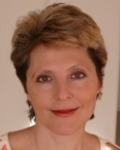
Biography:
Susan Chubinskaya, PhD, The Ciba-Geigy Professor of Biochemistry; has a primary appointment in the Department of Biochemistry with conjoint appointments as Professor of Internal Medicine (Section of Rheumatology) and Orthopedic Surgery at Rush University Medical Center. She is also Associate Provost for Academic Affairs at Rush. Her research interests are the growth factors and the mechanisms of cartilage degeneration and repair in aging and post-traumatic osteoarthritis. As a Principal Investigator, she secured more than $4.5M (direct cost) of extramural funding, presented more than 140 invited and podium lectures, published 80 peer-reviewed manuscripts, 10 book chapters, and more than 180 peer-reviewed abstracts.
Abstract:
Post-traumatic or early osteoarthritis (PTOA) occurs as a result of joint overuse or joint injury and primarily affects young people, actively involved in various sports. They are eager to return to regular physical routines as soon as possible, which may lead to re-injury or more severe traumas. In acute joint injuries, cartilage damage likely occurs at the time of the initial trauma or soon after. Therefore, understanding how to prevent cartilage damage before irreversible progression begins, may provide a window of opportunity for the evaluation of risk and diagnosis of early PTOA, which takes years to develop. By the time it becomes symptomatic, only surgical interventions remain as a viable treatment option. There is a critical need to develop strategies for improving the outcomes after surgical interventions that would delay or prevent the subsequent development of PTOA. Treatment of the pre-osteoarthritic joint disease is a new concept, which emphasizes the need for preventive strategies that will modify the course of a disease. The current approach to the clinical treatment of OA is the palliation of symptoms arising from late-stage disease. Early-stage disease or pre-osteoarthritis disease is clinically silent in that structural changes typically precede clinical signs and symptoms of pain, deformity, functional limitations, and disability. Metabolic changes in articular cartilage, synovium, and subchondral bone may represent the earliest measurable changes in pre-OA conditions. As such, it may lead to new intervention strategies that support the development of disease-modifying therapies. In this presentation we will review the latest advances in biologic approaches to cartilage repair.
Dennis M Lox
Sports and Regenerative Medicine Centers
USA
Title: Athletes, sports medicine and stem cells: Regenerative applications
Time : 10:15-10:35

Biography:
Dennis M Lox, MD is the Director of the Sports and Regenerative Medicine Centers A Stem Cell Center of Excellence in the Washington D.C. Metro Area and the Tampa Bay Metro Area. He attended the University of Arizona, where he was Phi Beta Kappa studying Liberal Arts. He then completed his medical training at Texas Tech University, followed by his residency program in PM&R at The University of Texas Health Science Centers at San Antonio. He has always pursued Sports Medicine, and this led to a path into Regenerative Medicine. He has edited 2 medical texts, 9 book chapters, and lectures national and internationally on sports, regenerative medicine and stem cells.
Abstract:
Athletic endeavor has always intertwined with pursuing optimal physical performance. The inherent risk of traumatic injury has placed sports medicine at the forefront of progressive treatment. The emergence of Regenerative Medicine has led to the clinical translation of sports medicine related problems. The use of Biologics, Platelet Rich Plasma (PRP) and Stem Therapy are foundations for this approach. The scientific literature will be explored to provide a foundation for the pathophysiology of injury and trauma as it relates to sports medicine, and the regulation of catabolic responses through cellular signaling and cytokines. The rationale for Regenerative Medicine applications such as stem cell treatments in sports medicine is presented. Various clinical cases are presented to illustrate the utilization of stem cell therapy and PRP as a therapeutic strategy to assist athletes in their return to sport. Select situations in which standard medical treatment is a surgical intervention, may be unsuitable for return to sport. A Regenerative Medicine treatment model incorporating Stem Cell Therapy, may provide suitable alternative strategies that facilitate healing and repair, without precluding return to sport. In the sports medicine world success is measured by return to sport. The clinical translation of Stem Cell Therapy into sports medicine may foster a transformation of treatment strategy.
- Symposium On Stem Cell Medical Engineering
Location: Vienna Room
Session Introduction
James L. Sherley
Founder and Director
Asymmetrex, LLC
Title: Asymmetric Self-Renewal: The fundamental property of tissue stem cells is the fundamental principle for their medical engineering
Time : 10:35-10:55
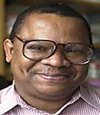
Biography:
James Sherley graduated from Harvard College (1980) and completed joint M.D./Ph.D. degrees at the Johns Hopkins University School of Medicine (1988). After post-doctoral studies at Princeton University, beginning in 1991 he led cancer cell molecular biology research at Fox Chase Cancer Center. In 1998, he began adult stem cell research at Massachusetts Institute of Technology, and in 2007 continued at Boston Biomedical Research Institute. In 2013, he founded the Adult Stem Cell Technology Center, LLC, (ASCTC), which he currently directs. ASCTC is developing technologies for mass-producing human tissue stem cells for applications in drug development and transplantation medicine.
Abstract:
Tissue stem cells do more than “self-renew and differentiate.†In fact, this commonly applied description may often be erroneous. Some tissue stem cells may never differentiate. Instead they divide to produce lineage-committed differentiating cells while retaining their own stem cell state. This remarkable capability is asymmetric self-renewal. Asymmetric self-renewal may be accomplished by either of two distinctive types of cell kinetics programs. Individual tissue stem cells may undergo determined asymmetric cell divisions that produce a stem cell sister and a lineage-committed sister; or small pools of stem cells may divide to produce stochastically either two sister stem cells or two lineage-committed cells. Both cell kinetics programs can achieve the same essential feature of vertebrate tissues, mature cell differentiation without loss of the cell development program. Increased application of the principle of tissue stem cell asymmetric self-renewal will accelerate success in engineering of human tissue stem cells for medical innovations. Asymmetric self-renewal poses an intrinsic challenge to production of tissue stem cells for use in cell replacement therapies like diabetes, anemias, liver failure, and tissue injuries. As a unique cellular process that defines tissue stem cells universally, asymmetric self-renewal is an ideal biomarker for quantitative dosing of tissue stem cells. Similarly, the unique cell kinetics output of tissue stem cells projects a unique cell growth signature that can be used to monitor tissue stem cells for novel drug evaluation assays. Such recent advances in tissue stem cell medical engineering based on the fundamental principle of asymmetric self-renewal will be presented.
Coffee Break 10:55-11:10 @ Vienna Foyer
- Track 2: Drugs and clinical Developments
Track 14: Signalling in Development
Track 17: Genetics, Bioinformatics and Computational Biology
Location: Vienna Room
Chair
Diana Anderson
University of Bradford, United Kingdom
Session Introduction
Kazuo Ishii
Tokyo University of Agriculture and Technology
Japan
Title: Statistical computing and mathematical modeling for understanding of biological functions using big data
Time : 09:20-09:40
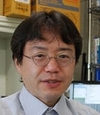
Biography:
Kazuo Ishii, Ph.D. is the Professor of Genomic Sciences, the Graduate School of Agriculture, Tokyo University of Agriculture and Technology. After receiving the PhD degree from the University of Tokushima Graduate School of Medicine in 1995, he began the professional career in genomic sciences. He has studied data analysis and data mining for microarray and next generation sequencing since 2003. His present interest is statistical computing and mathematical modeling for biology
Abstract:
Emergence of the next generation sequencing technologies and its application to clinical and biological research opened the door of the era of genomic big data. Today, realizing the personal medicine with big data is fascinating topic in the current clinical research. For manipulation and processing of genomic big data, we are utilizing four strategies of information technology: (1) Monte-Carlo Simulation, random sampling from the genomic big data. (2) HPC (high performance computing), possessing Many Core CPU and Large Memory. (3) Cloud-based Hadoop technology containing distributed file systems (HDFS) and distributed processing systems (MapReduce) on the Amazon Web Services (AWS). (4) non-Hadoop Shell scripting technology including distributed file systems and distributed processing system without hadoop. Monte-Carlo Simulation is a powerful method for optimization and elucidation of the biological functions using genomic big data. Here we will focus on the powerful and novel application of Monte-Carlo Simulation for genomic big data.
Julie R. Murrell
EMD Millipore, Bedford, MA
USA
Title: UPSTREAM EXPANSION SOLUTIONS FOR STEM CELLS
Time : 09:40-10:00
Biography:
Dr. Julie Murrell is a Senior R&D Manager for Stem Cell Biology and Collaborations at EMD Millipore. Dr. Murrell has led an early technology assessment group for the past 7 years and has been part of the Stem Cell group for 3 years. Through that time, she has led the efforts to establish robust assays and identify new targets as key quality attributes for large scale stem cell manufacturing, with a special focus on hMSCs. Dr. Murrell’s background is in Cell and Molecular Biology. Her multi-disciplinary background has led to innovative team-driven approaches in the field of stem cell production.
Abstract:
The long-term view of regenerative medicine therapies predicts an increased need for expansion solutions that ease scalability, utilize animal origin-free materials and are compatible with limited downstream processing steps. As more stem cell therapeutics progress through clinical testing, current in vitro culture methods in 2D vessels are proving cumbersome to scale. Moreover, the concurrent decreased demands for serum from the recombinant protein and vaccines markets may result in a shortage of serum as clinical cell therapy programs are successful. Currently available technologies and challenges in the upstream bioprocessing space, focusing on expansion of allogeneic mesenchymal stromal/stem cells (MSCs) will be reviewed within the context of specific case studies. First, we have developed an approach for selecting media and microcarriers, using adipose-derived MSCs as a model cell line. Next, an evaluation of animal-free media supplementation and cellular detachment solutions was performed. Because cellular therapeutic manufacturing processes are further complicated by the requirement to separate cells from microcarriers whilst retaining cell yield, viability and target phenotypic and functional characteristics, the importance of considering downstream challenges while establishing upstream parameters will be highlighted.
Stephen Lin
Thermo Fisher Scientific
USA
Title: Proximity ligation assays, A method for ultra sensitive protein detection
Time : 10:00-10:20
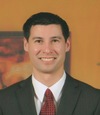
Biography:
Stephen Lin received his Ph.D. from Washington University in St. Louis in 2002 and did his postdoctoral research at Harvard University. In 2006 he joined StemCells,Inc of California as a scientist for liver cellular therapeutics, where he discovered pathways that contribute to the rapid decline of function and expansion of primary human hepatocytes. Since 2012 he has been staff scientist for early-stage product concepts at Life Technologies (now part of Thermo Fisher Scientific), a global life sciences company that develops and offers tools for every aspect of stem cell and gene therapy including genetic manipulation, genetic analysis, and cell culture.
Abstract:
Quantitative PCR (qPCR) has revolutionized the study of cellular nucleic acids, including genomic DNA, mRNA and micro RNAs. Now TaqMan® Protein Assays, which are based on the proximity ligation assay (PLATM) technology, extend qPCR applications to the analysis of proteins through the amplification of a surrogate DNA template. This technology has been optimized for use with crude cell lysates, tissue homogenates, and blood samples and has been combined with TaqMan® chemistry to create a highly sensitive and specific process for measuring proteins. With its simple and rapid workflow akin to traditional qPCR techniques, PLA enables a broad range of applications that includes the analysis of proteins from complex or difficult samples such as serum and plasma, protein modifications such as phosphorylation, and protein and gene expression from a single sample and even a single cell in parallel on the same platform. Moreover, PLA is being applied in new ways to study normal and aberrant biological processes that are associated with homeostasis, growth and differentiation. The addition of TaqMan® Protein Assays to the qPCR assay repertoire marks the beginning of a new era in the analysis of proteins that will ultimately provide a better understanding of biological systems.
Michal K. Stachowiak
State University of New York, USA
Title: Evidence based theory for an integrated genome regulation in ontogeny and its potential therapeutic targeting
Time : 10:20-10:40
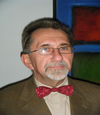
Biography:
Michal K. Stachowiak has completed his Ph.D from the Gdansk Medical University, Poland, in 1980, and postdoctoral studies at the University of Pittsburgh. He is director of the Molecular and Structural Neurobiology and Gene Therapy Program and Western New York Stem Cell Engraftment and In Vivo Analysis Core. He has published more than 100 papers in reputed journals. His book: “Stem Cells - from Mechanisms to Technologies” (World Scientific Publishing) describes fundamanetal mechanisms in the biology of stem cells and their terapeutic utilization.
Abstract:
The advent of multicellular mechanisms required an imposition of new controls over the natural propensity of single cell organisms to proliferate, invade new niches and transmit their genetic material. A strict dominion over the cell proliferation, migration and differentiation had been imposed so that the complex tissues and organs may be formed. The construction of the metazoan body engages myriads of genes and gene–controlling transcription factors (TFs). Their actions need to be coordinated in the context of 3D chromatin structure to ensure programmatic realization of the genetic blueprint. How such an immense task is accomplished remains largely unknown. Our studies have revealed a pan-ontogenic gene regulation mechanism, Integrative Nuclear FGFR1 Signaling (INFS), which controls pluripotency, cell cycle and differentiation programs. At its center are proteins that bear the historic name of Fibroblast Growth Factors (FGF) and FGF receptors (FGFR). Neither FGFs nor FGFRs exist in single-cell organisms, but are common to eumetazoans and key for the generation of specialized tissues. Gene ablation experiments demonstrated that mammalian fgfr1 and its invertebrate orthologs are essential for early gastrulation, development of mesodermal somites, nervous system (etc.), by affecting “master” genes of various ontogenic networks including Notch, Wnt, Hox, SOX, (etc.), and microRNAs. FGFs have emerged during early metazoan evolution equipped with nuclear localization signals (NLS), acting as nuclear proteins. Various members of the mammalian FGFs family retained NLS, likewise, individual FGFR (i.e. FGFR1) have structural adaptations that allow an accumulation and action directly in the cell nucleus. Most recently, RNAseq and ChIPseq have delineated a global and direct gene programing by nFGFR1, ensuring that pluripotent embryonic stem cells (ESCs) develop into multipotent neural progenitor cells (NPCs) and their further differentiation. nFGFR1 alone, and with its partner RXR and orphan receptors, targets promoters of thousands of genes, and forms multi-gene chromatin topological domains and controls the expression of pluripotency, cell cycle, ectodermal, morphogenic, neuronal, and mesodermal genes [6]. nFGFR1 targets genes in major developmental pathways and consensus sequences of TFs encoded by nFGFR1 targeted genes. nFGFR1 targets miRNA genes as well as DNA insulator sequences and is involved in active topological chromatin domains (multi-gene transcription hubs). These findings define previously unknown global and hierarchical genome control, which enables ontogeny and offers a new perspective on developmental disorders, cancer and their treatments. Such strategies may involve gene transfer-based and pharmacological re-activation of INFS to restore developmental-like neurogenesis in the adult brain.
Patricia Berg
George Washington University Medical Center
USA
Title: BP1, a Potential Oncogene Overexpressed in Cancer
Time : 10:55-11:15
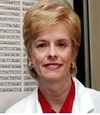
Biography:
Abstract:
BP1, a gene we identified and cloned, is a member of the homeobox gene family of transcription factors (TF). BP1 is overexpressed in breast cancer, prostate cancer, ovarian cancer, acute myeloid leukemia, non-small cell lung cancer, and possibly other malignancies as well. Important characteristics of BP1 in breast cancer include: (1) BP1 is expressed in 80% of invasive ductal breast tumors, including 89% of the tumors of African American women compared with 57% of the tumors of Caucasian women. (2) BP1 expression correlates with the progression of breast tumors, from 0% in normal breast tissue to 21% in hyperplasia and 46% in ductal carcinoma in situ. (3) Expression of BP1 is associated with larger tumor size. (4) BP1 appears to be associated with metastasis. Forty-six cases of inflammatory breast cancer were examined and all were positive for BP1 expression, as well as matched lymph nodes in the nine metastatic cases. (5) BP1 overexpression induces oncogene expression, including BCL-2, VEGF and c-MYC, as well as other genes important in angiogenesis, invasion and metastasis. pBP1 down-regulates BRCA1. (6) BP1 up-regulates ER alpha and induces estrogen independence. High pBP1 levels can lead to estrogen independence in ER positive breast cancer cells and tumors in mice. In summary, BP1 appears to confer properties on breast cancer cells that lead to a more invasive and aggressive phenotype. Since the functions of homeotic TF are highly conserved, it is likely that BP1 regulates many of the same processes and genes in other malignancies.
Manuela Stoicescu
Oradea University
Romania
Title: Beta-Human Chorionic Gonadotrophin (β-HCG total) as a tumor marker in pregnancy
Time : 11:15-11:35
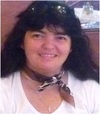
Biography:
Manuela Stoicescu, Consultant Internal Medicine Doctor (PhD in Internal Medicine) now is Assistant Professor of Medical Disciplines Department, University of Oradea, Faculty of Medicine and Pharmacy, Romania, Internal Medicine Hospital and Office. She is Member of Romanian Society of Internal Medicine, Member of Romanian Society of Cardiology, Chemistry, Biochemistry and Member of Balcanic Society of Medicine. She was invited as a speaker at 23 International Conferences, she is Editorial Board Member in three ISSN prestigious Journal in U.S.A, she published 12 articles in prestigious ISSN Journals in U.S.A. she published four books: two books for students in English and Romanian language:” Clinical cases for students of the Faculty of Medicine”, one book in English language on Amazon at International Editor – Lambert Publishing Academic House in Germany- “Side Effects of Antiviral Hepatitis Treatment”, one monograph in Romanian language” High blood pressure in the young a ignored problem!” two chapter books – Cardiovascular disease: Causes, Risks, Management CVD1- Causes of Cardiovascular Disease 1.5,1.6, U.S.A on Amazon.
Abstract:
Beta-Human Chorionic Gonadotrophin (β HCG total) represents a substance that is usually secreted by the placenta in the course of pregnancy. This is why it is used as a pregnancy test, because the values are high in the first trimester of the pregnancy. But the determination of the β HCG total is also can used as a tumor marker in order to detect gestational trophoblast diseases such as the hydatidiform mole and choriocarcinoma and germ cell tumors of the ovaries and testicle. Nevertheless the young pregnant hypertensive patient, with increased values of total β HCG after the first trimester of pregnancy, cannot be left to be interpreted only within the pregnancy context, but these must be taken into account as a possible choriocarcinoma diagnosis. This tumoral marker should be performed as a screening test in young pregnant women with severe values of blood pressure, after the first month of pregnancy, in order to detect an unknown choriocarcinoma, thus the blood pressure values should not be interpreted only within the pregnancy context, of course if other causes of secondary hypertension in pregnant woman were excluded. In the future the stem cell therapy it is posible to be a solution for this patients with choriocarcinoma unsolved yet.
Abdulkader Rahmo
New Cell Sciences, Inc
USA
Title: Relevance and scope of SMS derived Multicellular Micro Machines (M3) in Native tissue reconstruction.
Time : 11:35-11:55
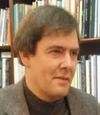
Biography:
Abdulkader Rahmo has completed his Diploma in Biochemistry in 1988 at the Swiss Federal Institute of Technology (ETHZ), his Ph.D in Biochemistry and Molecular biology in 1994 at the University of Southern California (USC) in los Angeles USA. He was heading the medical biotech section at the National Commission for Biotechnology. Currently he is the CSO of a newly established American biotech company. He is sole author of several scientific books and coauthor of many scientific articles.
Abstract:
The newly discovered Small Mobile Stem (SMS) cells exhibit the extraordinary ability to form diverse complex cooperative multicellular assemblies. These assemblies have a demonstrated aptitude for engineering tissue like structures in an in vitro cell culture set up. The observed approach to construction can be ascribed to a top down modus operandi at a micro level. It is executed by units we designated as Multicellular Micro Machines (M3). To explore the relevance and scope of this in vitro discovery, for the in vivo case of tissue reconstruction, M3 assemblies and their traces were hunted in a broad variety of native tissues. Results indicate the importance of implicating the M3 mediated mechanism in native tissue reconstruction; and demonstrate hence the fundamental role of SMS cells.
Akshay Anand
Post Graduate Institute of Medical Education and Research India
Title: Does hUCB derived Lin-ve stem cells rescue amyloid-β peptide induced mouse model of memory loss
Time : 12:15-12:35
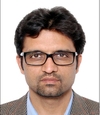
Biography:
Akshay Anand graduated from Post Graduate Institute of Medical Education and Research (PGIMER). He is interested in understanding the molecular mechanisms of neurodegeneration utilizing invitro, invivo, alternative and biotherapeutic approaches. He has been involved in the discovery of animal model of AMD published in Nature Medicine. Dr Anand is a recipient of ICMR Shankuntla Amir Chand Award (2010), Young Scientist Award from DAE (2005), Runners up for NASI Scopus Award for Biological Sciences(2012), served as Judge at ISEF, USA (2002-3), and is the Editor in Chief of Annals of Neurosciences.
Abstract:
Objectives: The objective of the study was to evaluate the effect of lineage negative human umbilical cord blood derived stem cells in rescue of memory loss in animal model of AD.
Methods: We used digital stereotaxis, immunohistochemistry, real time PCR and behavioral assays such rota rod and morris water maze in order to evaluate the learning and memory in experimetal and control Swiss Albino mice. Lineage negative stem cells were purified by MACS and labelled by CFDA dye in order to trace the stem cell recruitment, incorporation and differentiation and FACS analysis to characterise these cells before transplantation.
Results: There was dose dependent rescue of memory loss caused by transplantation of lineage negative hUCB cells. There was increase in BDNF and CREB expression subsequent to transplantation of Lineage negative human UCB cells as well as decline in apoptosis analysed by Fas L and Fluro Z. The immunolocalisation of Abeta reduced with transplantation of these cells.
Conclusion: Lineage negative UCB cells possess the necessary neurotrophic effect in extending the survival of hippocampal neurons which may contribute in rescue of memory loss. The immunolocalisation of Abeta reduced with transplantation.
Leigh J. Mack
CIMTESES Foundation, USA
Title: New Intercellular Surgical Closure System
Time : 12:35-12:55
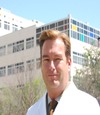
Biography:
Leigh J Mack completed his MD and PhD (March, 2015) at USAT Montserrat with a post-graduate training at University of Oxford in Nanotechnology for Medicine. He is the President of CIMTESES Foundation, Curacao. He is also is the Chief Medical Officer for Inaline, Corp. In addition, he is a consultant for several other companies and on the Board of Directors for many start up companies.
Abstract:
A new approach to surgical closures using a three-dimensional, intercellular space attachment system to approximate tissue. The design is mechanical in nature and does not employ adhesives. The system interfaces directly will the cellular wall to form attachments at the micron and nano level. The system also employs multiple modalities of attachment to provide hundreds of secure points of attachments for a highly effective hold.
Nasrin Moazami
Iranian Research Organization for Science and Technology
Title: A novel metabolite from an extremophile Streptomyces with apoptosis regulator function
Time : 12:55-13:15
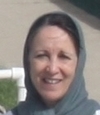
Biography:
Abstract:
Kavir-48, a protein with a molecular weight of 44 KDa., isolated from an extremophile Streptomyces was investigated for anti proliferative activity on 10 human cell lines. 5000 cells were plated in 96 well plates. After 24 h. Kavir -48 was added in five dose levels (0.01-100 µg/ml). After 4 days of continuous exposure, the cellular DNA content and morphology was determined, using propidium iodide staining, the resulting fluorescence correlates with a number of leased cells. A selective growth inhibition (Mean IC 70) observed for the large cell Lung cancer cell line and mammary cell line. The antitumor activity as well as tolerability of product was evaluated in In-vivo testing on lung cancer cells, (Xenograft in nude mice) since there might be a selective antitumor effect after 21 days of administration .Neither lethality nor body weight loss was observed in all group of tested animal, and in the large cell lung cancer model, a clear anti tumor effect observed after only five days of administration. Amino acid sequencing of protein suggest that the compound consist of a fusion proteins NISOD and a Tat protein combination. Expression of the enzymatic activity of the transduced Tat-SOD fusion proteins is essential for therapeutic application; for several reasons, such as the size and instability of the SOD enzyme these attempts to develop the natural enzyme for clinical use have been largely unsuccessful.
Award Ceremony
Closing Ceremony
Shivdas G Nanaware
D. Y. Patil University
India
Title: FORMED CELLULAR ELEMENTS OF BLOOD-PLATELETS: EXCELLENT WOUND HEALING CELLULAR TREATMENT
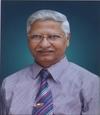
Biography:
Prof.Dr.Shivdas Ganpati Nanaware is a Dean, Faculty of Interdisciplinary studies and Co-ordinator, Stem Cell and Regenerative Medicine Department at Center for Interdisciplinary Research, D.Y.Patil Unviersity, Kolhapur, Maharashtra,India. Prof. Nanaware completed his Ph.D. at the age of 30 years from Shivaji University Kolhapur.After completion of his Doctorate he has served in the same University as a Professor and Head, Department of the Zoology for 35 years. Prof.Nanaware has a unique combination of rich scientific research and administration experience. His research is related to cellular changes in response to water polluting toxicants, pesticides and plant derived bioactive compounds. His research work on crop distructive molluscan pest snails and slugs is well recognized by the researchers working in Malacology.He has developed a “Confirmatory Metachromatic Histochemical Technique for the detection of unusual Polysaccharide, Galactogen†in animals. He has published more than 60 papers in reputed generals and has guided 20 research scholars for their M.Phil. and Ph.D. degrees. He is a member of editorial boards of many Journals of cell and tissue research. He has attended several national and international conferences in India and abroad. Prof.Nanaware is a life member of many professional societies. He has received several awards and honors in recognition of his meritorious research work. He is a recipient of Best Teacher Award, Govt. of Maharashtra and Shivaji University, Kolhapur. He is also a Gold Medal Awardee of Academy of Environmental Biology. Dr.Nanaware has interest in many branches of Zoology, Toxicology, Neurobiology, Cell biology Stem Cell and Regenerative Medicine and Clinical Application of Cell Therapy.
Abstract:
The wound management forms an important part of the medical and pharmaceutical concern worldwide. Many methods were traditionally used to cure wounds including dressing with natural or synthetic bandages such as cotton, wool, lint and gauzes, and the extracts of plant parts, oils and ghee. The effective wound management depends on understanding a number of different factors such as the type of wound, the healing process , condition of the wound in terms of health and infection ( e.g. diabetic) environment and social setting and the physical and chemical properties of the available dressings. In recent advances it has been proved that the platelets, one of the blood cellular elements, play important role in the wound healing mechanism both in wounds and non-healing diabetic wounds. Platelet cells are practically involved in every event of the wound healing cascade including homeostasis, proliferation, remodeling and cell signaling. Platelet cell growth factors like PGDF, TGF Alfa , TGF Beta and EGF help in chemotaxis, fibroblast proliferation, collagen production and metabolism, epithelial cell proliferation and granulation and tissue formation related functions in wound healing. With the development of platelet cell based procedures at our center such as use of activated platelets, platelet riched plasma (PRP), polymer based scaffolds of Polyvinyl alcohol (PVA) and Polyethylene glycol (PEG) and their combinations have showed dramatic and interesting changes during wound healing. Our efforts in developing the human skin engineering, cellular matrices and cell based therapies are in progress to improve perfect wound healing process. We hope that the potential application of these technologies will be helpful to the people with wounds in general and non-healing diabetic wounds in particular in the near future and will insure rapid and complete healing key strategy for the wound management.
- Symposium
Location: Vienna Room
Session Introduction
Ornella Parolini
International Placenta Stem Cell Society (IPLASS), Italy
Title: Immunomodulatory mechanisms underlying the therapeutical effects of amniotic membrane-derived cells
Time : 11:15-11:35
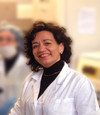
Biography:
Ornella Parolini is the Director of E. Menni Research Center, Fondazione Poliambulanza, Brescia, Italy and the President of IPLASS - International Placenta Stem Cell Society. She has pioneered research on human placenta-derived stem cells. Her research is focused on the immunomodulatory, anti-inflammatory and anti-fibrotic properties of amniotic and chorionic membrane-derivatives as amnion patches, amniotic cell subpopulations and their conditioned medium, as products applicable in regenerative medicine. She is author of over 100 publications in peer-reviewed journals as well as several book chapters. She also has several patent applications.
Abstract:
The modern understanding of regenerative medicine focuses on the immunomodulatory potential of MSC, rather than their differentiation capability. In the complex scenario of stem cells, the human placenta has blossomed as an interesting source of therapeutic cells. Our group has pioneered the understanding of the immunomodulatory potential of cells isolated from human term placenta. We have previously described the ability of mesenchymal cells isolated from the amniotic membrane (hAMSC) to reduce T cell proliferation induced by alloantigens or mitogens, and their capability to block the differentiation of monocytes to dendritic cells. Recently, we demonstrated that primary and expanded hAMSC, cultured with monocytes in either contact or transwell settings, strongly inhibited the differentiation of DCs and induced a shift toward M2-like macrophages. This was observed even when medium conditioned by hAMSC (CM-hAMSC) was aplied, but not when using cells isolated from the epithelial layer of the amniotic membrane (hAEC). We’ve also shown that monocytes co-cultured with hAMSC and hAEC possessed different secretomes. In a more recent study we showed that CM-hAMSC was able to equally suppress the proliferation of central and effector memory subsets of both CD4+ T-helper (Th) and CD8+ cytotoxic T-lymphocytes. CM-hAMSC induced significant changes in the phenotype of CD4+ cells, such as the reduced expression of markers associated to the Th1 and Th17 populations. Significant changes in cytokine secretion were also induced by CM-hAMSC. We also showed that CM-hAMSC significantly induced the Treg compartment, as shown by an induction of proliferating CD4+FoxP3+ cells and CD25+FoxP3+ and CD39+FoxP3+ Treg and increased secretion of TGF-β. Taken together, these multifaceted, immunomodulatory properties of cells isolated from the amniotic membrane of human term placenta, and conditioned medium derived from cell culture, render them unique and attractive for their potential in a variety of applications, especially inflammatory diseases.
- Track 3: Stem-Cell Transplantation
Track 7: Cell Mechanics
Track 8: Cell Based Therapies of Blood Diseases
Location: Vienna Room
Chair
James L. Sherley
Asymmetrex LLC, USA
Co-Chair
Ornella Parolini
International Placenta Stem Cell Society (IPLASS), Italy
Session Introduction
Shirwan Haval
Professor
University of Louisville
USA
Title: ProtExâ„¢ technology as an effective means of engineering bone marrow cells with immunoregulatory molecules for the establishment of mixed hematopoietic chimerism
Time : 11:10-11:30
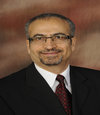
Biography:
Dr. Shirwan is Dr. Michael and Joan Hamilton Endowed Chair in Autoimmune Disease, Professor of Microbiology and Immunology, Director of Molecular Immunomodulation Program at the Institute for Cellular Therapeutics. He conducted his graduate studies at the University of California in Santa Barbara, CA, and postdoctoral studies at California Institute of Technology in Pasadena, CA. He joined the University of Louisville in 1998 after holding academic appointments at various academic institutions in the United States. Dr. Shirwan’s research focuses on the modulation of immune system for the treatment of immune-based diseases with particular focus on type 1 diabetes, transplantation, and development of prophylactic and therapeutic vaccines against cancer and infectious diseases. Dr. Shirwan is an inventor on 16 worldwide patens, widely published, organized and lectured at numerous national/international conferences, served on study sections for various federal and non-profit funding agencies, and is on the Editorial Board of a dozen of scientific journals. He is member of several national and international societies and recipient of various awards.
Abstract:
Allogeneic bone marrow transplantation (BMT) has the potential to cure a series of inherited and acquired hematological disorders. The routine application of allogeneic BMT as a therapeutic intervention in the clinic, however, is complicated by nonmyeloablative conditioning of the recipient, graft-versus-host disease (GVHD), and lack of engraftment. Although elimination of T cells from the donor BM inoculum is effective in curtailing GVHD, it results in compromised engraftment. Thus, strategies targeting specific and effective elimination of only the pathogenic T cells may have important implications for routine application of BMT to the clinic. We have developed a novel approach, designated as ProtEx™, to engineer bone marrow cells with an exogenous protein immunoregulatory protein, SA-FasL, and tested the efficacy of the engineered cells to engraft in allogeneic recipients. Our results demonstrate the robust efficacy of this approach to establish mixed hematopoietic chimerism under nonmyeloablative conditioning and without complication of GVHD.
Gary Guishan Xiao
Director
Genomics and Functional Proteomics Laboratories
Creighton University
USA
Title: Regulation of miR-34a-SIRT1 axis reduced breast cancer stemness
Time : 11:30-11:50
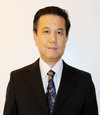
Biography:
Dr. Xiao is a Professor and the Director in School of Pharmaceutical Science at Dalian University of Technology China and the Functional Genomics and Proteomics Laboratories at the Creighton University School of Medicine, and an internationally recognized expert in the field of genomics and proteomics of cancer and bone disease. Dr. Xiao earns his Ph.D. in molecular biology in Institute of Biophysics at Chinese Academy of Sciences. He had his postdoctoral research trained in Baylor College of Medicine and UCLA, focusing on pharmacokinetics and biochemistry of non-steroid inflammatory drugs, and cell cycle regulation. He has been regular reviewer or ad hoc reviewer for several medical journals, different funding agency and several journal Editorial Board members and senior Editors.
Abstract:
Introduction Recent studies showed that enforced expression of miR-34a resulted in elimination of cancer stem cells in many tumors, including prostate, pancreatic cancers. In this study, we aim to understand regulatory mechanism of miR-34a in breast cancer stem cells (BCSCs). Methods CD44+/CD24− breast cancer stem cells (BCSCs) were isolated from MCF-7 cell line. Total RNA and protein was extracted from BCSCs and xenograft tissues. Levels of miR-34a, Sirtuin1 (SIRT1), ALDH1, BMI1 and Nanog, were measured by using qRT-PCR and Western blot. Cell proliferation and differentiation were measured by assays of CCK-8, colony formation and mammosphere formation. Cell apoptosis was measured by flow cytometry. Four groups of mice (n=5), lentivirus-hsa-miR-34a, shRNA-SIRT1, lentivirus-hsa-NC, and shRNA-Control, were used for study on tumor formation and growth. Results Lower endogenous level of miR-34a and higher level of Sirtuin1 (SIRT1) gene in CD44+/CD24- BCSCs than in breast cancer cells was identified. Further study demonstrated that miR-34a directly targeted SIRT1 gene leading to reduced SIRT1 expression in the BCSCs. Either ectopic expression of miR-34a or silenced SIRT1 in MCF-7 cells inhibited cellular proliferation, and led to cell apoptosis. Overexpression of miR-34a also suppressed expression of ALDH1, BMI1 and Nanog, and decreased capacity of mammosphere formation of the BCSCs significantly, suggesting the reduced stemness of BCSCs. Studies in vivo showed that stable expression of miR-34a reduced tumor burden significantly in nude mice xenografts. Conclusion Our results sshowed that anti-synergetic regulation of miR-34a-SIRT1 axis affected proliferation, colony formation, and mammosphere formation in BCSCs, suggesting that miR-34a-SIRT1 axis may play an important role in self-renewal and stemness maintenance of BCSCs. This study may provide a novel BCSCs specific therapeutic strategy to improve breast cancer treatments.
Xianmin Zeng
XCell Science Inc
California
Title: Pluripotent stem cell-based therapy for Parkinson’s disease
Time : 11:50-12:10
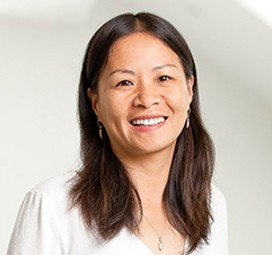
Biography:
Xianmin Zeng is a leading stem cell biologist with expertise in neural development of human ESC/iPSC. One of her research focuses is to study neural/neuronal development in human and to model neurodegenerative diseases, with a focus on Parkinson’s disease, using patient-specific and engineered isogenic iPSC lines. She has developed scalable processes of generating functional CNS cells and PNS cells for cell replacement therapy and screening drugs of neurotoxic and/or neuroprotective effects. She joined the faculty of the Buck Institute in 2005 where she builds the Institute’s Stem Cell Program. She received early tenure in 2009 and has been the Director of North Bay Shared Research Laboratory for Stem Cell and Aging at the Institute since 2008.
Abstract:
For cell-based therapy to treat Parkinson’s disease (PD), we have developed a Good Manufacturing Practice (GMP)-compatible process for generating authentic midbrain (A9/A10) dopaminergic neurons using defined media from either human embryonic stem cells (ESC) and induced pluripotent stem cells (iPSC). We have identified the optimal time point at which dopaminergic neurons can be frozen, shipped and thawed without compromising their viability and ability to mature in vivo after transplantation. We have also performed IND-enabling preclinical efficacy and safety studies using cells manufactured by this process. Our results show robust long-term survival of transplanted dopaminergic neurons and functional recovery at 6 months post transplantation in the 6-hydroxydopamine (6-OHDA)-lesioned rat PD model. To optimize the transplantation process we have helped develop and test a surgical delivery catheter that can be integrated with an US Food and Drug Administration (FDA)–approved iMRI skull-mounted aiming device and targeting software. We have demonstrated biocompatibility of the cells with the device and successfully delivered with iMRI guidance into swine models. In summary, 1) we have access to a clinical-grade ESC and iPSC line as well as their matched research grade differentiated cells; 2) We have identified a manufacturing site and have access to the DMF; 3) We have performed preclinical studies with cells manufactured by the GMP-compatible process we have developed and 4) We have coordinated with clinicians on developing a delivery procedure and a surgical trial design.
Margarita Glazova
Russian Academy of Sciences
Russia
Title: Intrinsic role of p53 in the differentiation of neural stem cells
Time : 12:10-12:30
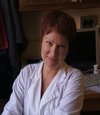
Biography:
Margarita Glazova received her PhD (1997) from Sechenov Institute of Evolutionary Physiology and Biochemistry Russian Academy of Science. She performed Postdoctoral studies at Turku Centre for Biotechnology, University of Turku/ÅboAkademi, Finland (2001-2003) and then at East Carolina University Brody School of Medicine, Department of Physiology, Greenville NC, USA (2004-2006). Now, she is Senior Researcher and group leader at the Sechenov Institute of Evolutionary Physiology and Biochemistry, Russian Academy of Sciences, St.Petersburg, Russia. Her main interests concern the study of adult neurogenesis and neural stem cells differentiation at normal and under neuropathology disease, such as epilepsy. She has published more than 30 articles in peer-reviewed scientific journals.
Abstract:
p53 is a tumor suppressor protein that induces cell cycle arrest, senescence, or apoptosis in response to cellular stresses. Recent studies suggest the involvement of p53 also in the regulation of neural stem cell self-renewal and differentiation. However, our knowledge about molecular mechanisms of the p53-mediated neuronal differentiation is still limited. The purpose of this study was to reveal the signaling pathways involved in p53-mediated neuronal differentiation. Recently, we demonstrated that p53 deficiencies affected not only on the functional activity of mature neurons of hypothalamus, but also differentially changed the cell’s populations. Moreover, our and others data demonstrated that p53 can induce MAPK activity, the well-known pathway involved in NSC differentiation. Our study was performed on neural progenitors isolated from the hippocampus of new-born mice.The obtained data demonstrated that p53 acts on neural differentiation in cooperation with MAPK. Moreover, the results revealed that GSK3b also mediates the effects of p53. This work was supported by grant RFBR 13-04-01431-a.
Caroline Hoemann
Professor
Ecole Polytechnique
Canada
Title: Fusion peptide P15-CSP coatings suppress biofilm formation and advance mesenchymal stem cell osteogenic differentiation on hydrophilic but not hydrophobic surfaces
Time : 12:30-12:50

Biography:
Dr. Hoemann (PhD, MIT, 1992) is a full professor of Chemical Engineering and Biomedical Engineering at the Ecole Polytechnique in Montreal, Canada, and an FRSQ National Research fellow. She has published over 50 articles, 3 opinion papers and 6 patents in the area of tissue engineering, cartilage/bone repair, and blood/innate immune responses to biomaterials. She is a member of the Orthopedic Research Society, Fellow Member of the International Cartilage Repair Society, lead author on the ICRS recommendation paper, “International Cartilage Repair Society (ICRS) recommended guidelines for histological endpoints for cartilage repair studies in animal models and clinical trials, Cartilage 2011, 2:153-172” and serves on the editorial board of Cartilage, and The Open Orthopaedics Journal. She spent 5 years as Director of Cartilage Repair, in a Montreal-based biomedical device company, where she co-invented and co-developed a novel medical device for articular cartilage repair, BST-CarGel® that was tested in an 80-patient randomized controlled clinical trial, received CE-mark approval, and is now being used in European clinics. Her current research program has created novel bioengineered biomaterial blood clot implants, developed new methods for staining and analyzing human cartilage repair biopsies, and has made advances in understanding the role of therapeutic inflammation and subchondral bone remodeling in cartilage repair responses. Her translational research program aims to understand the influence of local inflammation on cartilage and bone repair, in order to bring new treatment options to patients with arthritis.
Abstract:
In periodontal bone reconstruction procedures, bone growth is enhanced by osteogenic factors and impaired by wound infection. PepGen P-15 (P15) is an osteogenic collagen-mimetic peptide, and competence stimulating peptide (CSP) is a cationic amphiphilic peptide with antimicrobial activity. This study analyzed whether surfaces coated with P15-CSP fusion peptide have dual anti-infective and pro-osteogenic activities in vitro. Plastic surfaces were dry-coated with or without P15-CSP, CSP, P15, or left uncoated, then inoculated with Streptococcus mutans or seeded with human mesenchymal stem cells (MSCs). CSP coatings inhibited S. mutans planktonic growth while P15-CSP coatings suppressed biofilm formation. P15 had no antimicrobial or anti-biofilm activity. MSCs adhered and spread more rapidly on P15-CSP and CSP coatings compared to P15-coated and uncoated culture wells, although CSP-coatings showed slight cytotoxicity to MSCs after 24 hours of culture. After 3 weeks in osteogenic culture, MSCs up-regulated alkaline phosphatase activity on tissue culture plastic and P15, CSP and P15-CSP coatings, with a selectively higher matrix mineralization on P15-CSP-coated surfaces (p<0.05). In other assays, peptides were adsorbed to surfaces pre-coated with thin films of plasma-polymerized hydrophilic carboxylated ethylene (L-PPE:O) or hydrophobic hexamethyl disiloxane HMDSO. MSCs expressed alkaline phosphatase activity on carboxylated surfaces with higher matrix calcificationwhen L-PPE:O was further coated with P15 or P15-CSP. Unexpectedly, MSCs cultured on hydrophobic thin films developed alkaline phosphatase activity and failed to calcify, with or without peptide coatings. This study revealed that P15-CSP coatings stabilized by electrostatic interactions exert dual properties of anti-biofilm activity, and accelerated MSC adhesion and end-stage osteogenic differentiation.
Francisco Ruiz-Navarro
Regmed Research Center
Austria
Title: Neuron point-of-care stem cell therapy (N-POCST): Transplantation of autologous bone marrow-derived stem cells for traumatic central nervous system disorders, the future of a new method
Time : 12:50-13:10

Biography:
Dr. Francisco Ruiz-Navarro (M.D) is Research Associate at Regmed Research Center in Vienna, Austria. Before, he was working as researcher at the Mexican Institute for Neurology and Neurosurgery in the Cerebrovascular Department focused in multi-centric population studies with Hispanic stroke patients. He was research assistant in the Center for Research and Advanced Studies of the National Polytechnic institute (CINVESTAV) in Mexico City at the Brain Bank and Physiology, Biology and Neuroscience Department. He was Research Assistant in La Raza Medical Center in Mexico City in the pediatric nephrology department. He obtained the Medical Degree in Anahuac University in Mexico City and became USMLE board certified in United States of America with outstanding grades. During his carrier he had been attending physician in different Mexican hospitals in Mexico City as part of general medicine, anesthesiology and neurosurgical teams. He performed clinical rotations at Jackson´s memorial Hospital Miami, USA in the stroke unit, neuroradiology department and neurosurgery department. His current research is directed to the use of autologous bone marrow-derived stem cells for neurological diseases.
Abstract:
Traumatic insults of the central nervous system (CNS) result in definite chronic disability that respond partially and only in certain cases to rehabilitation. The use of autologous bone marrow-derived stem cells (BMSC) has been suggested to be a feasible treatment that improves the neurological recovery in these disorders. In the acute phase the stem cells transplanted target is to prevent neurons death by different secreting factors that provide neuroprotection via improvement of the local microenvironment. In a chronic scenario the objective is the restoration of neural tissue by transdifferentiation. Although the acute and chronic treatment seemed to have positive results in preclinical and ongoing pilot studies, the rationale of neuroprotection makes more probably to achieve better outcomes with an acute intervention. In order to accomplish the intervention immediately after the neurologic insult a method to process bone BMSC in an effective and prompt way should be available. The Neuron point-of-care method (N-POCST) described before by our group for other neurological diseases like amyotrophic lateral sclerosis, is a method of on-site cell separation with a closed system that uses density centrifugation technique with a fixed 10% reduction rate to isolate bone marrow-derived mononuclear cells (BM-MNCs) immediately after bone marrow aspiration and without mayor cell modification. The BM-MNCs concentrate is infused intrathecal (IT) after the separation. Several publications had described the safety of intrathecal stem cells infusion, others described the positive results with autologous BMSC, other studies confirm the effectiveness of the cell separation process to concentrate BM-MNCs, all of these results together open the track to develop further randomized controlled clinical trials with N-POCST in patients with acute traumatic brain injuries.
Bruno Doiron
University of Texas Health Science Center at San Antonio
USA
Title: Uncomplicated way to induce pancreatic beta cell formation in vivo through “Cellular Networking, Integration and Processing (CNIP)
Time : 13:55-14:15

Biography:
Bruno Doiron, Ph.D is an Assistant Professor at the University of Texas Health Science Center at San Antonio. He received his undergraduate degree from University of Moncton, Canada and graduate degrees from University of Montreal, Canada and University of Paris Descartes, Paris, France. As project leader he has made major discoveries in the field of gene regulation by nutrients and has 4 patents on the modulation of glucose metabolism as it relates to the treatment diabetes and cancer. Dr. Doiron has extensive experience in basic research at the physiologic and molecular levels and in respective applications to the biotechnology field.
Abstract:
We create a novel approach in biology that integrates multiples levels of cellular physiology to regulate organ function. We demonstrated by using CNIP, we can increase the pancreatic beta cell number in vivo in adult animals. The CNIP approach dictates simultaneous intervention at three major levels in cell processing: first, at the level of gene expression; second, at the level of the membrane receptor; and third, at the level of intracellular metabolism. By targeting all three levels simultaneously, one can induce a synergistic interaction to produce the desired cellular effect, i.e. pancreatic beta cell formation. The CNIP approach would have an enormous impact on the treatment of type 1 and 2 diabetes, where one of the major physiopathologic abnormalities is the loss of pancreatic beta cells, culminating in insulin deficiency. This CNIP approach has the potential to provide a completely novel and innovative approach for the prevention, treatment, and cure for this common metabolic disorder that affects 27 million individuals in the US alone and has reached epidemic proportions worldwide. Further, establishment of the CNIP approach would open the door for the treatment of many other complex human diseases.
Ivana Beatrice Mânica da Cruz
Universidade Federal de Santa Maria Brazil
Title: The impact of superoxide-peroxide hydrogen imbalance on cellular dysfunction, senescence and on regenerative therapies
Time : 14:15-14:35
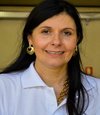
Biography:
Ivana Beatrice Mânica da Cruz is a geneticist and has completed her PhD at the age of 32 years from Rio Grande do Sul Federal University. Currently, she is associate professor and head of Biogenomics Laboratory Federal University of Santa Maria, Brazil. She developed an innovative protocol that associates population epidemiologic genetics investigations and in vitro studies relevant to stem cell therapies. She has published more than 60 papers in reputed journals and has been serving as a reviewer board member of repute.
Abstract:
The cellular control of superoxide anion (O2-•) and hydrogen peroxide (H2O2) concentrations is considered crucial to the cell because at low concentrations ROS can function as intracellular signaling molecules related to homeostatic regulation, whilst at high levels they can cause cellular dysfunction and senescence. To control ROS levels at physiological acceptable concentrations cells have an antioxidant enzymatic system that includes superoxide dismutases (SOD) enzymes that dismutate O2-• on H2O2 and glutathione peroxidase (GPX) and catalase (CAT) enzymes that catalyse H2O2 in H2O. There are three SOD isoforms including a SOD manganese dependent (MnSOD/SOD2) that acts into mitochondria, a cellular compartment where there is a continuous production of O2-• by the electron transport chain. Alterations in this antioxidant reaction equation can trigger oxidative stress that is related to risk of several chronical diseases. However, is difficult to study the impact of O2-• -H2O2 cellular imbalance I human cells due the influence of a large number of intervenient variables. For this reason, or research group established an in vitro experimental model with adult differentiated and stem cells that present different genotypes of a SOD2 single nucleotide polymorphism (SNP) located at codon 16 (rs4880). The homozygous genotypes present different SOD2 efficiency causing increase in O2-• levels (VV) or increase of H2O2 (AA). This genetic imbalance has being epidemiologically associated with risk of cancers (AA) or cardiometabolic diseases (VV). The results obtained suggest O2-• - H2O2 imbalance is involved to several pharmacogenetic, toxicogenetic and nutrigenetic responses of cell. The discussion of these results as well as the potential impact on clinical and regenerative therapies will be discussed.
Rafia S. Al-Lamki
University of Cambridge, United Kingdom
Title: TNF modulation of cancer stem cells in renal clear cell carcinoma
Time : 14:35-14:55
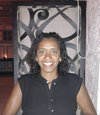
Biography:
Dr Rafia Al-Lamki is a Clinical Scientist in the Department of Medicine, University of Cambridge. She has been educated in Kenya, Oman, USA and the UK. Rafia graduated with a BSc (Hons) in Applied Biological/Biomedical Sciences at the University of the West of England in Bristol in 1994 before gaining an MPhil/PhD in Cellular Pathology at the University of Cambridge, Fitzwilliam College in 1999. She has received several awards; the Oman-American Joint Commission Scholarship in Advanced Medical Laboratory Sciences, University of California, San Francisco, USA, Oman Ministry of Health-British Council scholarship, Leatherseller’s Prestigious Award for highest achiever during her BSc studies, training fellowship in Cellular Pathology from the World Health Organisation and the Cambridge Commonwealth/Overseas Trust bursary. She was appointed a Research Associate in the Department of Medicine in 2000, joined St Edmund’s college as a Bye-Fellow in 2004, and became a Senior Research Associate in 2005 and Clinical Scientist in 2007. Rafia's research focuses on the role of the inflammatory mediator tumour necrosis factor, in renal disorders and cancer, and cardiovascular disease. She has developed a unique tissue organ culture model, which has provided novel insights into molecular and cellular responses in kidney and heart tissue, findings of which have contributed to various publications and a patent invention. She has also recently established a novel model system for isolation and culture of cancer stem cells from human kidney tissue. She is an active participant in the Cambridge-Yale Cardiovascular Research Programme; Editorial board member of various journals, recently co-authored a book ‘The TNF Superfamily’ and a fellow of several prestigious organisations. Solely, Rafia self-raised £70,000 to fund her MPhil/PhD studies in the University of Cambridge. She is fluent in English, Kiswahili and understands Arabic. Her interests include travelling, reading, running, windsurfing, squash, tennis, netball and dancing. She has assisted in coaching and organising the Omani Nurses team in the Muscat Ladies Netball league of Oman.
Abstract:
Tumor necrosis factor alpha (TNF), signaling through TNFR2, may act as an autocrine growth factor for renal tubular epithelial cells. Clear cell renal carcinomas (ccRCC) contain cancer stem cells (CSCs) that give rise to progeny which form the bulk of the tumor. CSCs are rarely in cell cycle and, as non-proliferating cells, resist most chemotherapeutic agents. Thus recurrence after chemotherapy may result from the survival of CSCs. Therapeutic targeting of both CSCs and the more differentiated bulk tumor populations may provide a more effective strategy for treatment of RCC. In this study, we hypothesized that TNFR2 signaling will induce CSCs in ccRCC to enter cell cycle so that treatment with ligands that engage TNFR2 will render CSCs susceptible to chemotherapy. To test this hypothesis, we have utilized wild-type TNF (wtTNF) or specific muteins selective for TNFR1 (R1TNF) or TNFR2 (R2TNF) to treat either short term organ cultures of ccRCC and adjacent normal kidney (NK) tissue or cultures of CD133+ cells isolated from ccRCC and adjacent NK, hereafter referred to as stem cell-like cells (SCLCs). The effect of cyclophosphamide (CP), currently one of the most effective anticancer agents, was tested on CD133+SCLCs from ccRCC and NK before and after R2TNF treatment. Responses to TNF were assessed by flow cytometry (FACS), immunofluorescence, and quantitative real time PCR, TUNEL and cell viability assays. Cytotoxic effect of CP was analysed by FACS using Annexin V-FITC and propidium iodide. In addition, we assessed the effect of TNF on isolated SCLCs differentiation using a three-dimensional (3D) culture system. Clinical samples of ccRCC contain a greater number SCLCs compared to NK and the number of SCSC increases with higher tumor grade. Isolated SCLCs show expression of stemness markers (oct4, Nanog, Sox2, Lin28) but not differentiation markers (cytokeratin, CD31, CD45 and EpCAM). In ccRCC organ cultures, wtTNF and R2TNF increase CD133 and TNFR2 expression and promote cell cycle entry whereas wtTNF and R1TNF increase TNFR1 expression and promote cell death of SCLCs. Similar findings are observed in SCLCs isolated from NK but the effect was greater in SCLCs isolated from ccRCC. Application of CP distinctly triggered apoptotic and necrotic cell death in SLCSs pre-treatment with R2TNF as compared to CP treatment alone, with SCLCs from ccRCC more sensitive to CP compared to SLCS from NK. Furthermore, TNF promotes differentiation of SCLCs to an epithelial phenotype in 3D cultures, confirmed by cytokeratin expression and loss of stemness markers Nanog and Sox2. The differentiated cells show positive expression of TNF and TNFR2. These findings provide evidence that selective engagement of TNFR2 drive CSCs to cell proliferation/differentiation, and targeting of cycling cells with TNFR2 agonist in combination with anti-cancer agents, may be a potential therapy for ccRCC.
Mei Wan
Associate Professor
Johns Hopkins University School of Medicine
USA
Title: Mobilization and Differentiation of Multipotent Nestin+ Stem Cells during Arterial Remodeling
Time : 14:55-15:15
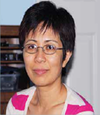
Biography:
Dr. Mei Wan is an Associate professor of the Center for Musculoskeletal Research, Department of Orthopaedic Surgery at Johns Hopkins University School of Medicine. She obtained her Ph.D. in Pathophysiology at Hebei Medical University in 1997. Her research for the past 17 years focuses on characterizing the mechanisms by which bone marrow mesenchymal stem cells (MSCs) are regulated in various physiological and pathological conditions such as bone remodeling, cancer development, vascular disorders, and tissue repair/remodeling. At earlier years of her career, she demonstrated that the role of proteosome degradation pathway in the regulation of TGFβ signaling. She also identified the central mechanism through which parathyroid hormone stimulates bone formation, which had been the major unresolved question in bone field. In recent years, she found that active TGFβ can be released from tissue in response to perturbations to the local environment such as bone remodeling (Nat. Med. 2009, Cell Stem Cell 2011), arterial injury (Stem Cells 2012, Stem Cell Dev. 2014), and lung injury (J. Immunol. 2014). The released active TGFβ stimulates the migration of MSCs to participate in tissue repair or remodeling. Currently, Dr. Mei Wan is an editorial board member for Journal of Bone and Mineral Research and Bone Research.
Abstract:
Multipotent mesenchymal stem cells (MSCs) can mobilize into the circulating blood under many circumstances, such as serious disease, injury, or stress. MSCs then migrate to the remodeling sites and differentiate toward distinct lineages of cells. However, the primary factors and signaling pathways that control MSCs recruitment to the injured sites and their commitment/differentiation into lineage-specific local cells are largely unknown. Here we show that active TGFβ controls the mobilization of MSCs to circulating blood in response to arterial injury and their recruitment to the target sites, where the cells give rise to either endothelial cells to repair the damaged endothelium or smooth muscle cells (SMCs)/myofibroblasts contributing to intimal hyperplasia. In our animal models of arterial injury, about 50% of the neointimal cells were derived from MSC lineages. Using an ex vivo cell migration assay established in our laboratory, we found that TGFβ activated from the injured vessels induces MSC migration, and this effect is mediated by Smad-MCP1 signaling cascade. Moreover, active TGFβ produced from the injured vessels also activated RhoA-ROCK signaling in MSCs and induced their differentiation to SMC/myofibroblastic neointimal cells. Inactivation of ROCK maintains the stemness of MSCs and their differentiation capacity to endothelial cells. Importantly, treatment of the arterial injured mice with ROCK inhibitor promoted re-endothelialization and inhibited neointima formation of the vessels. Thus, pharmacotherapies that inhibit RhoA-ROCK signaling offer a new therapeutic target for treating cardiovascular disease by promoting endothelium repair and inhibiting pathological intimal hyperplasia.
Hanna Dobrowolska
Columbia University Medical Center
USA
Title: Increasing the engraftment capacity and function of hematopoietic stem cells after transplantation
Time : 15:15-15:35
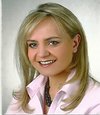
Biography:
Dr. Dobrowolska has completed her PhD at the age of 27 years from Jagiellonian University Cracow Poland and University of Louisville USA. She is the Associate Research Scientist in Columbia University USA. Her research interests focuses on hematopoietic stem cells and novel markers in diagnosis and treatment of blood malignancies. The results of her work have been presented in numerous international meetings and publish in recognized journals.
Abstract:
Stem cells are the objects of scientific interest for many years. It is known that stem cells are the only cells in the body that can self-renew and differentiate to all type of the cells. Hematopoietic stem cells which can be received from bone marrow, peripheral blood or cord blood are used during auto- and allogenic transplantation in order for the reconstitution of bone marrow after mieloablative procedure. A lot of elements have influence on the way of hematopoietic cells preparation for transplantation, including conditions in which the cells are stored and prepared, knowledge and preferences of teams carrying out these activities. The protocols used for processing and storing stem/progenitor cells which are used as a transplant material are not unified around the world. Some factors like temperature, storage time and type of anticoagulants can have influence on preservations and cells’ survival and as a consequence have an impact on their ability for engraftment. As the number of hematopoietic cells transplantation increase constantly every year, the aim of my work is to optimize the hematopoietic cells storage conditions which help to maximize the hematopoietic stem cells ability for homing and reconstructing hematopoiesis after transplantation.
Wendy W. Weston
1VIVEX Biomedical
USA
Title: The RNA profile of exosomes from MSCs during osteogenic differentiation
Time : 15:35-15:55
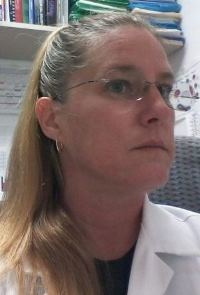
Biography:
Wendy Weston is currently the Staff Development Scientist at VIVEX Biomedical. She completed her Postdoctoral studies at Bruce W Carter VA Medical Center, GRECC researching isolation of specific MSCs known as MIAMI cells. She completed her PhD from University of Miami, Miller School of Medicine in Molecular, Cell and Developmental Biology investigating the metastability of HSCs and the BM niche. She worked on bone formation and acceleration of fracture healing in the rat at Loma Linda VA and studied somatic gene therapy for muscle atrophy and B-MHC promoter activity following spinal cord isolation at Cal Poly, Pomona (MS Biological Sciences/Chemistry).
Abstract:
The importance of exosome contribution to the success of MSC healing properties has recently become clear. It has been suggested that exosomes are responsible for paracrine signaling to themselves and neighboring cells, resulting in immune mediation, tissue repair and differentiation into a variety of cell types, depending on the parental cell, time of collection and neighboring environment. We are interested in discovering the RNA components of the abundant exosomes produced by MSCs as they transition to osteoprogenitors. It is intuitive that the RNA excreted by the exosomes will differ at various stages of differentiation. There is already good evidence that the RNA composition of exosomes from cultures varies between cells and over time. Importantly, we wish to know if the changes in exosome RNA correlates with the signals necessary to drive the differentiation process and if previously undiscovered stimulants are present. If either previous or latter are found, it is possible that the purified exosomes from MSC culture supernatant at specific stages would elicit specific results upon transplantation. We are utilizing MIAMI cells exposed to osteogenic media for 21 days. Supernatant from the cell cultures are collected at day 0, 2, 7, 14 and 21. Exosomes are isolated from the supernatant and RNA is isolated from the exosomes. RNASeq is performed utilizing the Ion Proton Next Generation Sequencer. The RNA content of exosomes from each time point are being compared for elucidation of which remain constant and which change during various stages of osteogenic differentiation.
Christophe Thiriet
Université de Nantes
France
Title: The histone tail domains are critical in cell proliferation
Time : 16:10-16:30
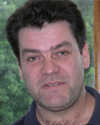
Biography:
Christophe Thiriet has completed his PhD studies on chromatin in France and joined the Jeffrey J. Hayes Lab at the University of Rochester for his postdoctoral training on chromatin biochemistry. He has a permanent position at CNRS and he is the group head of the team ‘Epigenetics: proliferation and differentiation’ at the University of Nantes (France).
Abstract:
During cell proliferation, the genetic material and the epigenetic information need to propagate through daughter cells. A key step for these inheritances is the replication occurring in S-phase of the cell cycle. At this stage of the cell cycle, replication-coupled chromatin assembly of parental and newly synthesized histones is required for regaining the initial chromatin structure. Our group has developed a novel methodology to examine the function of the tail domains of histones in taking advantage of unique properties of the Physarum polycephalum model system. We showed that depending upon the histone complexes the tail domains did not present the same requirements. Indeed, while the tail domains of H2A/H2B are dispensable for nuclear import but required for chromatin assembly, the H3/H4 tail domains are needed for both nuclear import and chromatin assembly. We demonstrated that H3/H4 tail requirement is associated with histone acetylation. These results led us to propose a model showing the importance of well-conserved replication-dependent diacetylation of H4.
Itamar Barash
Agricultural Research Organization
Israel
Title: Delineating stem cells and cell hierarchy in the bovine mammary gland
Time : 16:30-16:50
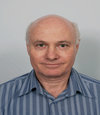
Biography:
Itamar Barash has completed his Ph.D. at the age of 34 years from the Hebrew University of Jerusalem and Postdoctoral studies from McGill University, Polypeptide Hormone Laboratory. Montreal Canada, and the Weizmann Institute of Science, Molecular Genetics Department. Rehovot, Israel. He is Senior Research Scientist at the Volcani Center and a Lecturer in the Faculty of Agriculture and Environmental Sciences of the Hebrew University of Jerusalem. He has published more than 47 papers in reputed journals.
Abstract:
The bovine mammary gland is a favorable organ for studying mammary cell hierarchy due to its adaptation to extensive cell expansion, differentiation and renewal. The higher stem cell number at the onset of lactation may augment lactation persistency and add commercial benefits to the scientific knowledge. However, little is known about the bovine mammary stem cells and cell hierarchy. Here, bovine mammary epithelial cells were sorted according to the expression of CD24 and CD49finto 4 enriched populations: Stem cells, Basal cells, luminal progenitors and differentiated luminal cells. The enriched CD49fpos/CD24med population exhibited in vitro stem cell properties and held the greatest in vivo potential to regenerate the mammary epithelium, upon transplantation into the mammary fat pad. Clone formation, gene expression and floating mammosphere analysis combined with the transplantation experiments suggested that the stem cells give rise to bi-potent progenitors which differentiate along the basal/ myoepithelial lineage and possibly also give rise to luminal cells. The stem cells also generate luminal-restricted progenitors that give rise to differentiated luminal cells. Outgrowths generated by bovine cell transplantation maintained bovine cell characteristics, but did not expend in the mouse mammary fat pad. Fibroblast pre-transplantation improved outgrowth frequency, but not expansion. Limited expansion was achieved with estrogen and progesterone treatment. The underlying mechanism of the restricted bovine outgrowth development was studied in vitro. Apparently, it involves secreted factor(s) from the mouse mammary stroma that inhibit the development of foreign epithelial structure via paracrine signaling and may serve as a local defense mechanism against foreign tissue development.
Guido KRUPP
AmpTec GmbH
Germany
Title: Synthetic mRNAs as optimised tools for stem cell generation and for manipulating cellular phenotypes
Time : 16:50-17:10
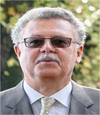
Biography:
Dr. Guido Krupp (Ph.D.) is CEO and president of AmpTec GmbH. In 1981 he received his Ph.D. degree (Würzburg University & Max-Planck-Institute Martinsried). From 1983 to 1987 he was post-doc at Yale University. From 1987 to 2002: research group leader at Kiel University. Founder of artus GmbH (year 1998) & AmpTec GmbH (year 2005). Research interests: nucleic acid technology with focus on RNA, plant pathogens (viroids), ribozymes and telomerase. More than 60 publications, editor of Ribozyme Biochemistry & Biotechnology, and of Telomeres, Telomerases & Cancer, in the editorial board of Biotechnology Annual Review; SAB member of Orthogenics AS, Tromso, Norway.
Abstract:
Availability of high quality synthetic mRNAs (syn-mRNAs) has enabled progress in their applications. Important structural features, alternative technical options for high-amount, high-quality mRNA synthesis and GMP-compliant manufacturing and quality requirements are presented. Requirements in the application of mRNA-mediated manipulation of cells are presented (i) mRNA-directed expression of antigens in dendritic cells for vaccination projects in oncogenesis, infectious disease and allergy prevention; (ii) reprogramming of human fibroblasts to induced pluripotent stem cells with their subsequent differentiation to the desired cell type; (iii) applications in gene therapy.
Christopher A Bradley
Lattice Biologics, Inc., USA
Title: Extracellular matrix-assisted cell viability
Time : 17:10-17:30
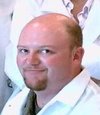
Biography:
Christopher A. Bradley (Ph.D.), began his scientific research career in the field of Translational Control of Gene Expression at Louisiana State University Health Sciences Center in Shreveport, Louisiana. He has held several postdoctoral research positions within the University of California Davis Health System performing research in the fields of proteomics, head-and-neck cancer and osteoarthritis. His academic experience in Arizona involving virology and nucleocytoplasmic trafficking prepared him for industry positions in nutraceuticals and regenerative medicine. He currently serves in stem cell product development as Project Manager for Lattice Biologics, a certified tissue bank and manufacturer of surgical allografts.
Abstract:
Decellularized tissue matrices derived from cadaveric sources provide allografts used in surgical applications such as spinal fusion, tendon replacement, breast reconstruction, and dermal wound healing. The emergent technology of adult stem cells promises to augment these traditional surgical materials to create medical treatments that are truly regenerative. The next generation of allografts that will be self-healing and superior to previous implementations will require the application of stem cells and stem cell-derived technologies. In the case of bone tissue, osteoinductive properties of demineralized bone matrix are retained and can direct differentiation of recruited stem cells to promote healing. However, cell homing, retention, and vascularization at the lesion site could be greatly improved. Research to define the niche specified by stem cell-secreted extracellular matrix (ECM) has allowed for customization of the ideal healing microenvironment. Allografts infused with stem-cell derived ECM can potentially provide all the necessary signals that would improve engraftment and viability of recruited stem cells. Additionally, manipulation of the growth conditions under which stem cells produce their ECM could revive quiescent cells and enhance vascularization. Lattice Biologics seeks to develop the next generation of allografts. We envision using fluorescent chimeric RNA aptamers to measure important metabolite ratios in living cells and select for conditions ideal for autologous stem cell transplantation. Similarly, optimization of conditions used to grow stem cells in vitro could influence the output of soluble and insoluble signals present in secreted ECM which would then be used to instruct a patient’s own circulating stem cells.
Shaohua Li
Rutgers-The State University of New Jersey
USA
Title: CREG1 interacts with Sec8 to promote cardiomyocyte differentiation of embryonic stem cells
Time : 17:30-17:50
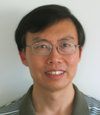
Biography:
Abstract:
CREG1 is a small glycoprotein originally identified in a yeast two-hybrid screen of the Drosophila cDNA library. To investigate its physiological functions, we first performed immunostaining and immunoblotting on mouse tissues. We found that CREG1 is highly expressed in both embryonic and adult hearts. During mouse embryonic stem (ES) cell differentiation into cardiomyocytes, the expression level of CREG1 increases and correlates with myogenic differentiation. Overexpression of CREG1 in ES cells enhances cardiomyogenesis, whereas knockout of CREG1 has an inhibitory effect. Chimeric analysis suggests that the cardiac-inducing activity of CREG1 is cardiomyocyte intrinsic. Affinity pull-down assay using His-tagged CREG1 followed by mass spectrometry identified a novel interaction between CREG1 and Sec8 of the exocyst complex essential for tethering vesicles to the plasma membrane. In vitro protein binding assay using recombinant His-tagged CREG1 and the Sec8-GST fusion protein confirmed direct binding of CREG1 to Sec8. Furthermore, site-directed mutagenesis revealed that the amino acid residues D141 and P142 in CREG1 are required for Sec8 binding. Rescue of CREG1 knockout ES cells with human wild-type CREG1 restores cardiomyocyte differentiation while the Sec8-binding mutant fails to do so. In addition, shRNA-mediated knockdown of Sec8 in wild-type ES cells also inhibits cardiomyogenesis. These results suggest that CREG1 binding to Sec8 promotes cardiomyogenic differentiation. Mechanistically, CREG1, Sec8 and N-cadherin are co-localized to both intercellular junctions and Rab11-positive recycling endosomes. Overexpression of CREG1 increases the N-cadherin protein level and enhances the assembly of adherens and gap junctions. By contrast, knockdown of Sec8 leads to cadherin degradation. Taken together, these data support a notion that CREG1 binds to Sec8 and enhances the assembly of intercellular junctions, thereby promoting cardiomyogenesis.
Prwati Armand
Airlangga University
Indonesia
Title: The Potential Differentiation of Hypoxic Niche Bone Marrow Derived Autologus Mesenchymal Stem Cells For Retinal Disorder Treatment
Time : 17:50-18:10
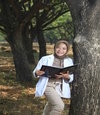
Biography:
Prwati Armand is a scientist, researcher currently working at Fakultas Kedokteran, Universitas Airlangga. She has experience in the areas of stem cell , regenerative medicine, bone marrow transplantation, pancreatic stem cells and diabetic treatment. At now, she has published more than 10 papers in reputed journals.
Abstract:
The use of stem cells in the treatment of retinal degenerative disease has received increasing attention recently . Based on embryogenesis retina cell was developed from neural crest, this is part of ectoderm layer. The neuroretina is a complex structure whose health depends on blood vessels and retinal pigment epithelium (RPE). Replacement therapy is an approach to regenerative medicine in which healthy cells replace cells that have died or are dysfunctional. For example, in retinitis pigmentosa, photoreceptors die. Replacement therapy for RP could involve transplantation of cells that can integrate with the host retina and function as photoreceptors. Replacement retinal therapy is sight-restoring also in diabetic retinopathy. To be useful for cell replacement therapy, stem cells must proliferate extensively to generate sufficient quantities of material if they are intended to serve as a “universal donor.” If the stem cells are derived from the patient (e.g., iPSCs), then the requirement for extensive proliferation may be reduced considerably since these cells will serve only one recipient. Stem cells must stably differentiate into the desired cell type(s). ESCs and iPSCs vary in their tendency to differentiate into cells of a given lineage . MSCs are multipotent, which means they can form multiple cell types of one lineage. For example, a retinal progenitor cell can give rise to photoreceptors, bipolar cells and ganglion cells but not to corneal cells. Adult stem cells may remain quiescent for long periods until activated by a normal need for more cells to maintain tissues . To extend the potential tendency differentiated of bone marrow derived autologus MSCs to the retinal cells we make a quiescent condition of the MSCs by niche modification of culture with hypoxia before to injection to the patients. We measure the express of Octamer 3/4 (Oct4), sex determining region Y box–containing gene 2 (Sox2), and Nanog as a marker of pluripotency and also evaluate the optimal passage of stem cell before used.
Reinaldo Geraldo
Federal University of Juiz de Fora, Brazil
Title: Platelet Activity: The assessment profi le in patients with sicle-cell hemoglobinopathy and the antiplatelet potential of synthetic compounds
Time : 18:10-18:30

Biography:
Reinaldo Barros Geraldo is a young scientist, researcher currently postdoc at Federal University of Juiz de Fora (Brazil). Graduated in Biomedicine Fluminense Federal University (2007), Master of Neuroimmunology, Fluminense Federal University (2009) and Doctor of Science by Federal University of Rio de Janeiro (2013). Has experience in the areas of biochemistry, with an emphasis on computer modeling, acting on the following subjects: Comparative modeling, structural biochemistry and Molecular Biology. At now, he has published 11 papers in reputed journals.
Abstract:
Platelets and erythrocytes are blood elements involved in important pathologies such as the hemoglobinopathies, thrombosis and occlusive processes, and they may be both correlated to them. The treatment of these pathologies is a science purpose as the current options present risks and collateral effects. This work purpose was to produce a review about platelets and erythrocytes and their participation in some pathology, also describing a brief study about these elements and a hemoglobinopathy patient. We also identified some molecules with an antiplatelet profile on rabbit blood from three new acylhidrazones and pirazole-piridine serie synthetized by Alice Bernardino and Vitor Ferreira groups from Instituto de Química da UFF (Labiomol AM serie) and Luiza Dias e Maria Abadia Di Vaio groups from Faculdade de Farmácia da UFF (Labiomol LHa e Labiomol LHb serie), using ADP, arachidonic acid and collagen as agonists. The LabiomolLHa serie was the most promising on platelet assay induced by arachidonic acid, where Labiomol LHa 41, 43, 62, 65, 66, 67 e 130 compounds were able to totally inhibit the platelet aggregation.
- Track 10: Novel Stem Cell TechnologiesÂ
Track 16: Tumour Science, Apoptosis and Cancer
Location: Vienna Room
Chair
Paul J. Davis
Albany Medical College, USA
Co-Chair
Gary Guishan Xiao
Dalian University of Technology, China
Session Introduction
Paul J Davis
Albany Medical College
USA
Title: Activity of nanoparticulate tetrac (nanotetrac) on models of glioblastoma
Time : 11:35-11:55

Biography:
Davis is a graduate of Harvard Medical School and had his postgraduate medical training at Albert Einstein College of Medicine and the NIH. His academic positions have included Chair, Department of Medicine, Albany Medical College. He has served as President, American Thyroid Association, as a member of the Board of Directors of the American Board of Internal Medicine and he is Co-Head, Faculty of 1000 – Endocrinology. He serves on multiple Editorial Boards of His scientific interests include molecular mechanisms of actions of nonpeptide hormones, particularly, thyroid hormone. He and his colleagues described the cell surface receptor for thyroid hormone on integrin ï¡vï¢3 that underlies the pro-angiogenic activity of the hormone and the proliferative action of the hormone on cancer cells. He has co-authored more than 200 original research articles and 30 textbook chapters and he has edited three medical textbooks.
Abstract:
Glioblastoma multiforme (GBM) is an aggressive brain tumor with a less than 10% 5-year survival rate. The tumor is relatively chemo- and radioresistant and, despite its vascularity, has shown disappointing clinical responses to anti-angiogenic management. Nanoparticulate tetrac (Nanotetrac) is anti-cancer/anti-angiogenic agent that acts exclusively at a thyroid hormone-tetrac receptor on plasma membrane integrin ï¡vï¢3 and does not gain entry to cells. In the formulation, tetrac is covalently bound via a linker to poly(lactic-co-glycolic acid) (PLGA) nanoparticles. From the integrin, the agent disorders a panel of tumor cell defense pathways by downstream actions on expression of differentially regulated genes and is pro-apoptotic by several mechanisms. In the C6 rat subcutaneous glioma xenograft in the mouse, standard clinical GBM chemotherapy with temozolomide (TMZ) at 10 mg/kg was wholly ineffective (tumor volumes) at 14 d, as was subtherapeutic Nanotetrac at 0.3 mg/kg. Added to TMZ, Nanotetrac at 0.3 mg/kg reduced tumor volume by 53% at 14 d. In the subcutaneous human U87MG (U87-luc) GBM xenograft, Nanotetrac at 1 mg/kg injected with implanted cells inhibited tumor growth by 79% at 16 d. Luminescent scanning revealed no viable cells in the Nanotetrac-exposed tumors, with full viability in the void PLGA-injected lesions. Systemic (s.c.) Nanotetrac at 1 mg/kg reduced subcutaneous tumor U87MG xenograft volume by 46% at 10 d. All Nanotetrac results were significant at p <0.05. Studied in vitro, U87MG cells proliferated in response to physiological concentrations of free L-thyroxine (T4) and supraphysiological levels of 3,5,3,-triiodo-L-thyronine (T3). The T4 effect was associated with activation of mitogen-activated protein kinase (pERK1/2), but not phosphatidylinositol 3-kinase. Taken together, these studies indicate that 1) GBM is a thyroid hormone-responsive tumor, consistent with clinical observations of the action of induced hypothyroxinemia on GBM (A Hercbergs et al., Anticancer Res 23:617-626,2003; Oncologist 2015, in press) and 2) Nanotetrac systemically or intratumorally is effective in reducing GBM xenograft volumes/weights and reducing tumor cell viability.
Stephen Lin
Thermo Fisher Scientific
USA
Title: Induced pluripotent stem cells as models of human disease: A promising approach for studying Parkinson’s disease
Time : 11:55-12:15
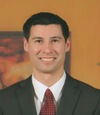
Biography:
Stephen Lin received his PhD from the Washington University in St. Louis and did his Postdoctoral research at Harvard University. In 2006 he joined StemCells, Inc. of California as a Scientist for liver cellular therapeutics, where he discovered pathways that contribute to the rapid decline of function and expansion of primary human hepatocytes. Since 2012 he has been Staff Scientist for early-stage product concepts at Life Technologies (now part of Thermo Fisher Scientific), a global life sciences company that develops and offers tools for every aspect of stem cell and gene therapy including genetic manipulation, genetic analysis, and cell culture.
Abstract:
Induced pluripotent stem cells (iPSCs) have great potential to model, and possibly treat human ailments that have long been difficult to study in the laboratory. One example is Parkinson’s disease (PD), a progressive neurodegenerative disorder marked by a loss of dopaminergic neurons in the brain. Because of the lack of access to disease tissue and the paucity/scarcity of good animal models, iPSC-generated neurons hold promise in the development of model systems to study PD. Beyond the core principles of generating iPSCs, a series of technologies are needed to develop these cells as disease models and therapeutics. These include the non-integrating introduction of stem cell factors, precise editing of iPSC genomes and effective differentiation methods. Using PD as an example, the author will describe a non-integrating virus delivery system that was used to generate iPSCs from Parkinson’s patients and a Transcription Activator-Like (TAL) effector nuclease technology for targeted DNA editing of those cells. The author will also cover methods for studying these PD patient cells, including methods for direct differentiation of iPSCs to neural stem cells (NSCs) without the usual intermediary embryoid body and rosette formation, and downstream methods for monitoring phenotypes that are associated with PD cells. A long-term goal is to use these cells and assay technologies as a platform for interrogating small molecule compounds in order to identify drug candidates that “relieve” the phenotypes associated with PD. The author will end with thoughts on challenges, but hope, of using stem cells to model and treat human diseases.
Georg F. Weber
University of Cincinnati Academic Health Center
USA
Title: Regulation of anchorage-independence by splice variants of osteopontin
Time : 12:15-12:35
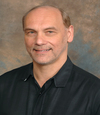
Biography:
Georg F. Weber attended medical school in Wuerzburg, Germany. He worked at the Dana-Farber Cancer Institute, Harvard Medical School from 1990 through 1999 and is currently on the faculty at the University of Cincinnati. Georg F. Weber has published close to 90 scientific reports, including many in the most respected professional journals, and various monographs, most recently textbooks on molecular oncology and anti-cancer drugs. He holds several patents. As a component of his mission to research cancer dissemination, Georg F. Weber is the founder and chief executive officer of MetaMol Theranostics, a company specialized in diagnosis and treatment of cancer metastasis.
Abstract:
The major limiting factor in the process of metastasis formation is the death of the tumor cells before their implantation in target organs. Hence, anchorage-independent survival is essential for metastasis. While untransformed non-hematopoietic cells undergo anoikis consecutive to losing contact with their substratum, cancer cells can survive in the circulation for extended periods of time. The detachment of mammary epithelial cells prompts a loss of glucose transport, leading to ATP deficiency, compromised energy metabolism, and cell death. Invasive breast tumor cells abundantly express two splice variants of the metastasis gene osteopontin. Osteopontin-a and osteopontin-c synergize in supporting tumor progression via up-regulating the cellular energy production, thus supporting deadherent survival. Osteopontin-a increases the levels of glucose in breast cancer cells, likely through sn-glycero-3-phosphocholine, STAT3 and its transcriptional targets apolipoprotein D and IGFBP5. Osteopontin-c signaling activates three interdependent pathways of the energy metabolism, comprising the hexose monophosphate shunt and glycolysis that can feed into the tricarboxylic acid cycle, the glycerol phosphate shuttle that supports the mitochondrial respiratory chain, and elevated creatine that increases the formation of ATP. Metabolic probing identified differential regulation of the pathway components, with mitochondrial activity being redox dependent and the creatine pathway depending on glutamine. These molecular connections generate a flow toward two mechanisms of ATP generation, via creatine and via the respiratory chain, which are consistent with a stimulation of the energy metabolism that supports anti-anoikis. Osteopontin-c is never expressed without the full-length form osteopontin-a. Each of these splice variants activates signal transduction pathways that are distinct from the other. Our findings imply a coalescence in cancer cells between osteopontin-a, which increases the cellular glucose levels, and osteopontin-c, which utilizes this glucose to generate energy. The splice form-specific metabolic effects of osteopontin add a novel aspect to the pro-metastatic functions of this molecule. It is likely that metabolic responses to environmental cues are more common in cell biology than has hitherto been recognized.
Prabhat Kumar Singhal
Massachusetts General Hospital, USA
Title: GFP reporter based study identify fibroblast-like cells reprogramming and invasion
Time : 12:35-12:55

Biography:
Prabhat Singhal has completed his PhD from Centre for DNA Fingerprinting and Diagnostics (CDFD), Manipal University in 2007. Dr. Singhal has postdoctoral experience at Massachusetts General Hospital (MGH), Harvard Medical School (HMS). Currently, Dr. Singhal is a research associate at MGH. He has published several high impact articles in reputed journals. Dr. Singhal has served as peer reviewer across multiple journals and has been serving also as an editorial board member. Dr. Singhal is the founding member of Green Science Foundation and technical advisor to Biotech Dhaba.
Abstract:
Ludmila B Buravkova
Russian Acadeny of Sciences
Russia
Title: Optimization of cord blood stem/progenitor cells expansion: Human adipose-tissue derived stromal cells in combination with hypoxia effectively support ex vivo multiplication of hematopoietic precursors
Time : 12:55-13:15
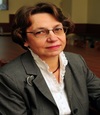
Biography:
Ludmila B Buravkova (MD, PhD) is a member of Russian Academy of Sciences, Head of Cell Physiology Lab, IBMP and Professor of Moscow State University. She is an expert in stem cell and gravitational physiology, cell signaling, a tutor of 19 PhD students, has over 100 publications,12 patents, serves as Editorial Board Member of Human Physiology, Cell Technologies in Biology and Medicine, Advisory Boards in Russian Ministry of Science and Russian Found for Basic Research, PI of projects in cell physiology, received awards from Russian Government for Outstanding Scientific Results (2004) and from Pleiades Publishing for best publications in Life Sciences (2014).
Abstract:
Cord blood hematopoietic stem/progenitor cells (cbHSPCs) attract considerable interest as an alternative to bone marrow HSPCs. Low number of HSPCs in one sample limit its broad application. Thus far, the development of ex vivo cbHSPC amplification is a primary goal of cell technologies. Imitation of hematopoietic niche ex vivo may significantly improve cbHSPC expansion. In this work, HSPCs were selected from unfractioned cbMNCs through adhesion to adipose mesenchymal stromal cells (ASCs) under standard (20%) and tissue-related (5%) О2. ASCs efficiently maintained viability and supported further HSPC expansion at both О2 levels. A new floating generation of HSPCs grew up and was enriched with СD34+ cells up to 100 (20% О2) and 200 (5% О2) times, included cobble-stone area forming cells and colony-forming cells (CFCs). The number of CFCs was 1.6 times higher than at 20% О2 due to increase in multipotent precursors - BFU-E, CFU-GEMM and CFU-GM. These changes were at least partly ensured by increased of MCP-1 and IL-8 at 5% O2. After HSPC/aMSC interaction, up-regulation of cell adhesion molecule genes (ICAM-1, VCAM-1, CDH1) and down-regulation of matrix remodeling genes (COLs, MMPs, TIMPs, ADAMs, HAS1) were demonstrated by RT-PCR. This indicates on activation of ASC stromal function at 5% O2. Thus, the combination of cbMNCs and ASCs enables selection of HSPCs, whose further expansion without exogenous cytokines provides the CD34+ cells enrichment. These data are important for elucidation of hematopoiesis mechanisms and as a tool for ex vivo HSPC expansion for the needs of regenerative medicine.
Daniela Dinulescu
Harvard Medical School, USA
Title: Targeting key cancer stem cell pathways overcomes chemo resistance to platinum therapy
Time : 14:00-14:20
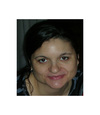
Biography:
Daniela Dinulescu is an Assistant Professor at Harvard Medical School. She received her Ph.D. from Oregon Health and Science University and completed her postdoctoral studies in the field of Cancer Genetics at MIT. Dr. Dinulescu’s research interests focus on cancer biology, malignancies of the gonads and reproductive tract, with a special emphasis on ovarian cancer research and endometriosis. Our laboratory is actively investigating the key contribution of cancer stem cells (CSCs) to tumor chemoresistance. Our current studies focus on better understanding the mechanism of Notch signaling in the maintenance of the CSC niche and ovarian tumorigenesis. The aim is to harness the power of nanotechnology to develop improved “homing” technologies for the delivery of therapeutic agents specifically targeting and sensitizing ovarian cancer cells, including CSCs, in a spatio-temporal fashion.
Abstract:
Chemo resistance to platinum therapy is a major obstacle that needs to be overcome in the treatment of solid tumors, including ovarian cancer patients. The high rates and patterns of therapeutic failure seen in ovarian cancer are consistent with a steady accumulation of drug-resistant cancer stem cells (CSCs). Our studies demonstrate that the Notch signaling pathway and Notch3 in particular are critical for the regulation of CSCs and tumor resistance to platinum. We have shown that Notch3 over expression in tumor cells results in expansion of CSCs and increased platinum chemo resistance. In contrast, γ-secretase inhibitor (GSI), a Notch pathway inhibitor, depletes CSCs and increases tumor sensitivity to platinum. Similarly, a Notch3 siRNA knockdown increases the response to platinum therapy, further demonstrating that modulation of tumor chemo sensitivity by GSI is Notch specific. Most importantly, the cisplatin/GSI combination is the only treatment that effectively eliminates both CSCs and the bulk of tumor cells, indicating that a dual combination targeting both populations is needed for tumor eradication. Both platinum-resistant and platinum-sensitive relapses may benefit from such an approach as clinical data suggest that all relapses after platinum therapy are increasingly platinum resistant. Since this increased sensitivity is only observed in tumors with Notch 3 over expression and activation of the Notch pathway, the use of genetic biomarkers to identify which patients are most likely to benefit from GSI-based therapy is critical. In addition, it is important to identify a Notch-based signature to better assess drug responses in clinical trials. A further challenge to the clinical application of GSIs has been their gastrointestinal toxicity and off-target effects. In an attempt to remedy this issue, inhibitory antibodies have recently been synthesized for all Notch receptors, including Notch 3, and they are currently being tested. This will pave the way for new clinical trials to evaluate the efficacy of more selective and less toxic antibody based therapies in enhancing the response to platinum treatment. The overwhelming potential of Notch-based cancer treatments cannot be ignored. Increasing the use of personalized tumor biomarkers and translating these novel therapies into practice holds great promise for achieving a better prognosis in ovarian cancer.
Hany A. Omar
University of Sharjah
Title: Energy Restriction Synergizes Doxorubicin Activity via Targeting Breast Cancer Stem Cells
Time : 14:20-14:40
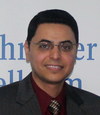
Biography:
Omar holds a Bachelor’s degree in Pharmaceutical Sciences (1998) and a Master’s degree in Pharmacology and Toxicology (2005) from Faculty of Pharmacy, Cairo University, Egypt. He completed his Ph.D. degrees in molecular biology at The Ohio State University, Columbus, Ohio (2010). After post-doctoral studies at The Ohio State University (2011), he led cancer cell molecular biology research in different places. He is now an assistant professor of Molecular Pharmacology and Therapeutics, University of Sharjah, United Arab Emirates & Beni-Suef University, Beni-Suef, Egypt. Dr. Omar has published close to 35 scientific reports, including many in the most respected professional journals on molecular oncology and anti-cancer drugs.
Abstract:
Unlike normal cells, cancer cells often shift their metabolism from oxidative phosphorylation to aerobic glycolysis as an adaptive response to intermittent hypoxia and the robust demand for energy production. However, the high need of glucose and the lack of flexibility in modifying energy resources make cancer cells extremely vulnerable to glucose starvation and energy restriction. Breast cancer stem cells (BCSCs) are known to mediate metastasis, resistance to radiation and chemotherapy, and contribute to relapse. The aim of the current work was to study to effect of energy-restriction mimetic agents (ERMAs) such as resveratrol and 2-deoxyglucose on the anticancer activity of doxorubicin in breast cancer cells. Methods: The antitumor effects of ERMAs and/or doxorubicin and the therapeutic combination were assessed by MTT assay, caspase activation, PARP cleavage, colony formation assay, immunofluorescence, and Western blot analysis. Percentage of ALDH1+/CD44+/CD24-/low in MDA-MB-231 cells was assessed by flow cytometry. Treatment with doxorubicin, while inhibited the cell viability, increased breast cancer ALDH1+/CD44+/CD24-/low cells. This stem cell-enriched population was declined and the anticancer effect of doxorubicin was significantly synergized by its combination with resveratrol or 2-deoxyglucose, suggesting that ERMAs preferentially inhibit stem/progenitors in breast cancer cells. Together, our results suggest that the targeting BCSCs population by ERMAs could be a rational strategy to minimize the resistance to doxorubicin.
Shuji Matsuoka
Juntendo University School of Medicine
Japan
Title: Therapeutic anti-pan HLA-class II monoclonal antibody that directly induces lymphoma cell death via large pore formation
Time : 14:40-15:00
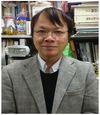
Biography:
Shuji Matsuoka has completed his PhD at the age of 30 years from Tokyo University and postdoctoral studies from La Jolla Institute for Allergy and Immunology. He is the assistant professor of Pathology and Oncology, Juntendo University School of Medicine. He has published more than 30 papers in reputed journals.
Abstract:
We developed mouse anti-human pan HLA class II monoclonal antibody (mAb) by immunizing BALB/c mouse with live cells of several human lymphoma cell lines and screened by cytotoxic ability for lymphoma cell lines not used for immunization. This newly established mAb triggered cytoskeleton-dependent, but complement- and caspase-independent, cell death in Hodgkin lymphoma (HL) cell lines, Burkitt lymphoma cell lines, and advanced adult T-cell leukemia cell lines but not normal lymphocytes. Intravenous injection of mAb 4713 in tumor-bearing SCID mice improved survival significantly. Treatment with this mAb induced the formation of large pores on the surface of target lymphoma cells within 30 min. This finding suggests that the cell death process induced by this anti-pan HLA-class II mAb may involve the same death signals stimulated by a cytolytic anti-pan MHC class I mAb (RE2) that also induces large pores formation in mouse lymphoma cell lines and activated normal lymphocytes. This multifaceted study supports the therapeutic potential of mAb 4713 for various forms of lymphoma.
Anna Asplund
Uppsala University
Sweden
Title: Global expression analysis of cell lines; what can we learn about in vitro growth?
Time : 15:00-15:20
Biography:
Anna Asplund completed her PhD in 2005, and has since then been working as a Researcher within the Human Protein Atlas project at Uppsala University, Sweden. She is responsible for technical development within the group, and also in charge of the Cell Line, Atlas, displaying the expression profile in 44 cell lines on both RNA and protein level. She has published more than 40 articles in reputed journals.
Abstract:
Enormous amounts of money and time is spent on research performed on cell lines. In December 2013 a new version of the Human cell line atlas was released, featuring complete transcriptomic profiling of 43 human cell lines of diverse cellular origin. In addition, in situ protein profiles with IHC images, generated using well validated antibodies, are available for approximately 5500 gene products. With transcriptomic data additionally available from 27 different tissues, comparisons between diverse sets of both tissues and cell lines has allowed us to identify principle differences in gene expression between in vivo and in vitro growth. The analysis reveals that approximately 32% of the protein coding genes are expressed in all samples, both tissues and cell lines, and are likely to perform “housekeeping” functions. For the remaining 68%, tissues show a greater level of expression of genes involved in regulation of communication, while cell lines more abundantly express genes involved in mitosis. Hierarchical clustering reveals that, as expected, all cell lines cluster together, and not with their respective tissue counterparts. However, if only genes displaying a specific expression in a subset of tissues or cell lines are included in the analysis, the clustering appears quite different. In addition, global transcriptome analysis of colorectal cancer cell line CaCo2 reveals a greater level of resemblance to colon tissue if cultured in 3D compared to in 2D. The expression of colorectal specific genes appears to be retained in 3D, while lost in 2D. Major differences are also seen in morphology.
Asem Surindro Singh
National Centre for Biological Sciences, India
Title: Population and family based association study on TPH1, TPH2 and ITGB3 genes indicate serotonergic system involvement in autism spectrum disorder
Time : 15:20-15:40
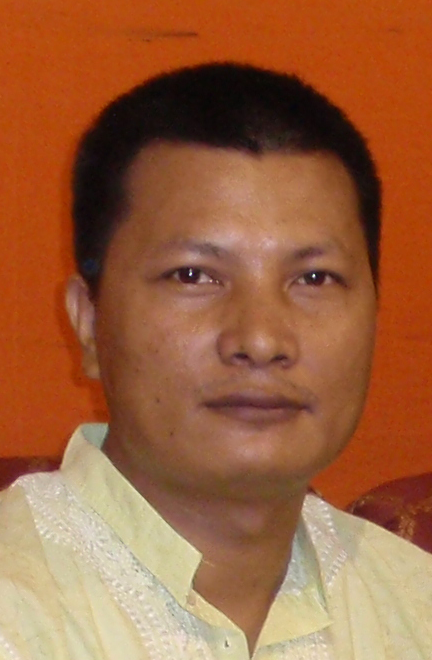
Biography:
A.S. Singh is presently working as postdoctoral research fellow in the laboratory of Dr. Axel Brockmann at NCBS. He completed his Ph. D research in May 2013 in the University of Calcutta under the supervision of Dr. Usha Rajamma. His main research interest is to understand the mechanism of how genes regulate behaviors through certain neural circuitry systems.
Abstract:
Autism spectrum disorder (ASD) is one of the most common genetically predominant neurodevelopmental disorders and the prevalence rate is more than one percent. The pathophysiogy of the disorder is highly complex and several genes are believed to involve with each having minor contribution leading to the final ASD phenotype. In the last two decades, various risk variants of different genes have been identified but none of the individual variants account for more than 1% of ASD cases in average. Recent researches are strongly approaching towards identification of genes that contribute to specific autism endophenotype. So far two most common finding in ASD research are transient increased of head circumference and platelet hyperserotonemia. And platelet hyperserptonemia has been considered as autism endophenotype. Moreover, abnormal serotonin synthesis capacity has been implicated in the brain of ASD individuals, thereby the involvement of serotonergic system abnormality both in the brain as well as periphery in the pathophysiology of ASD. Investigation of few selected single nucleotide polymorphisms from three potential serotonergic candidate genes, TPH1, TPH2 and ITGB3 via population and family based approaches, revealed moderate risk of these genes to the disorder. Gene-gene interaction analysis further suggests their interactive role in ASD. Thus, the present finding provides preliminary evidence and one step further towards the involvement of these genes on the cause of ASD. Further validation on cellular and animal model system will be able to provide the functional effect caused by these genetic variants.
Laurent Counillon
Université Nice-Sophia Antipolis
France
Title: The intracellular Na+/H+ exchanger NHE7 effects a novel Na+ but not K+-coupled proton-loading mechanism in endocytosis
Time : 15:55-16:15
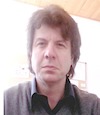
Biography:
Laurent Counillon has completed his PhD at the age of 26 years from the University of Nice-Sophia Antipolis and his postdoctoral studies at Yale University (Center for Structural Biology). He is full Professor of Biochemistry and Molecular Biology at the University of Nice-Sophia Antipolis since 2003 and group leader in the CNRS UMR7370 Research Unit located at the Faculty of Medicine of Nice.
Abstract:
Eukaryotic single-membrane organelles possess a finely tuned acidic luminal pH, which is crucial for the compartmentalization of cellular events and for the maturation, trafficking, recycling and degradation of proteins. This acidification is described to be produced by vacuolar H+-ATPases, coupled to vesicular ClC chloride transporters. Three highly conserved Na+/H+ exchangers NHE6, 7, 9 are also expressed in these compartments. Their mutations are linked to autism-spectrum disorders and neurodegeneration. NHE6, 7 and 9 are believed to exchange cytosolic K+ for H+ and alkalinize vesicles. We used somatic cell genetic techniques based on proton killing to select cell lines that express wild-type-intracellular NHEs at the plasma membrane. This enabled the measurement of the exchangers transport parameters using intracellular pH and ion flux measurements. Noticeably, we showed that NHE7 transports Li+, Na+ but not K+, is non-reversible in physiological conditions and is constitutively activated by cytosolic H+. Therefore it cannot work as a proton leak, but rather as a novel proton-loading transporter. Using videofluorescence and spinning disk confocal microscopy we next observed that in intracellular vesicles NHE7 mediates an acidification that is additive to that of V-ATPases. This acidification results in an accelerated endocytosis rate. Taken together our study reveals an unexpected proton-loading function for a vesicular Na+/H+ exchanger and provides clues for understanding its role in intracellular trafficking as well as in NHEs linked-neurological disorders.
Ahmed T El-Serafi
University of Sharjah
UAE
Title: Can glass be the answer for in-vitro bone differentiation?
Time : 16:15-16:35
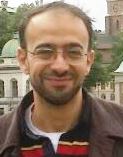
Biography:
Serafi was graduated from the College of Medicine, Suez Canal University, Egypt and obtained his master degree in Medical Biochemistry from there. He had his PhD degree in the field of the bone and cartilage regeneration from the Centre for Human Development, Stem Cells and Regeneration, Institute of Developmental Sciences, Developmental Origin of Health and Disease division, University of Southampton, UK. Ahmed is currently an assistant professor in the University of Sharjah, UAE and he is establishing stem cells research line within the Sharjah Institute of Medical Research.
Abstract:
Three dimensional tissue culture is gaining more interest as being more physiological model that increases cell to cell contact and consequently enhances stem cell differentiation and matrix formation. This model is gaining more interest as an alternative for animal testing according to the 3Rs guidelines. Previously, we have reported different modifications for the classical 3D models for pellet cultures system in order to enhance the processes of osteogenesis and chondrogenesis of human bone-marrow-derived stromal cells and human fetal-femur-derived cells. Hereby, we investigated the effect of different materials on the pellet formation. When the cells were cultured on glass tubes, the cells formed a monolayer rather than coalesce together to form a pellet. After 10 days, the cell layerhas self-assembled itself to form a 3D sphere that was at least 16 times the size of pellets formed in similar conditions on a plastic surface. Extensive osteoid was formed in these self-assembled spheres, which had folded into sheets with chondrogenic matrix in between. These unusual constructs offer a new model to test the effect of drugs on bone formation. In addition, combining few constructs may help to fill a bone gap as a potential and novel approach in regenerative medicine.
Huanxiang Zhang
Medical College of Soochow University, China
Title: Beta-Catenin Signaling Regulates the Chemotactic Responses of Mesenchymal Stem Cells
Time : 16:35-16:55
Biography:
Prof. Huanxiang Zhang has completed his Ph.D at the age of 28 years from Beijing Normal University, China and postdoctoral studies from Geneva University School of Medicine, Switzerland. He is now working in the Department of Cell Biology, Medical College of Soochow University, China. His research focuses on the control of the directed migration and differentiation of stem cells, including neural stem cells, mesenchymal stem cells and embryonic stem cells, and tissue engineering, especially the interaction between stem cells and the silk fibroin scaffolds with a variety of physical and chemical properties. He has published more than 50 papers in reputed journals. Recently, his group demonstrated the close relationship between the chemoattractant-stimulated chemotaxis of stem cells and their differentiation states.
Abstract:
Precise migration of stem cells is crucially important for embryonic development, homeostasis in adults, and tissue repair after injury. However, the detailed mechanisms of the directed migration of these cells are not clear. During the past few years, our study showed that the differentiating mesenchymal stem cells (MSCs) possess different migratory capacity and the chemotactic responses of these cells correlates closely with their differentiation states. Accordingly, the formation and the asymmetrical distribution of focal adhesions (FAs) between the leading lamella and the cell rear, the phosphorylation of focal adhesion kinase (FAK) and paxillin, as well as the turnover of FAs varies greatly in differentiating MSCs, leading to the most effective chemotactic responses of MSCs in certain differentiation states. Further, we demonstrated that signaling through PI3K/Akt and MAPKs are involved in regulating the directed migration of MSCs. More importantly, we found that beta-catenin signaling is prerequisite for the chemotactic migration of MSCs. In this talk, I will summarize our data regarding the regulatory effects of beta-catenin signaling on MSCs that undergo chemotaxis.
Maryam Eslami
Harvard Medical School, USA
Title: Collagen 1 and Elastin Genes Expression of Mitral Valvular Interstitial Cells in MicroFiber Reinforced Hydrogel
Time : 16:55-17:15
Biography:
Abstract:
Shalini Gupta
King George’s Medical University, India
Title: Development and validation of HPLC method for the determination of 5-fluorouracil as intra oral nanogel for oral cancer treatment
Time : 17:15-17:35
Biography:
Shalini Gupta is working as the Associate Professor in the Department of Oral Pathology, KGMU, Lucknow, India. She had University Merit Scholarship and fourteen Gold Medals & distinction. She is actively involved with various extramural & intramural research projects and published 55 papers in indexed national & international journals. She is also in the Editorial Advisory Board & reviewer in various journals. She has many Fellowships & Scientific Awards to her credit. She has many National & International Memberships in Prestigious Associations. She has also Published two Books. Area of Interest- molecular genetics and cytogenetics, oral cancer genomics and proteomics,Nanotechnology , cancer stem cell, bioinformatics & Forensic Odontology.
Abstract:
This study focuses on development and validation of the HPLC method for the determination of 5-Fluorouracil (5 FU), used in chemotherapy for oral cancer treatment as intra oral nanogel formulation. Oral squamous cell carcinoma (OSCC) is sixth most common cancer and mostly occurs in middle and older ages. The HPLC method was validated according to the International Conference on Harmonization (ICH) guide¬lines (2005). The following characteristics were consid¬ered for validation: specificity, linearity, range, accuracy, precision, LOD, LOQ and robustness. A fast, simple and reliable HPLC method using photodiode array detection for determining the encapsu¬lation efficiency of 5-FU in PLA and PLA-PEG blended nanoparticles has been developed and validated according to the ICH guidelines. The method fulfilled the require¬ments to be considered as a reliable and feasible method, including specificity, linearity, precision, accuracy, robustness, LOD and LOQ and further be evaluated in nanogel fomulation. The analytical procedure has a chromatographic run time of 4.30 min, which allows analyzing a large number of samples in a short period of time.
- Track 1: Stem Cell & Gene Therapy
Track 4: Current Research
Location: Barcelona Room
Chair
Haval Shirwan
University of Louisville, USA
Co-Chair
George G. Chen
The Chinese University of Hong Kong, China
Session Introduction
Robin Bachelder
Duke University Medical Center
Durham
Title: Chemo-residual Triple-Negative Breast Tumor cells Exhibit Increased Metastatic Potential
Time : 11:35-11:55

Biography:
Dr. Bachelder obtained her Ph.D. from Harvard University in 1995, and pursued postdoctoral studies at Harvard Medical School for an additional 10 years. She joined the faculty in the Department of Pathology at Duke University School of Medicine in 2005, where she initiated her studies of triple-negative breast cancer chemotherapy resistance. Her research focuses on understanding tumor heterogeneity, and its implications for therapy resistance. She has published more than 20 peer-reviewed manuscripts, and is the recipient of multiple grants from the Department of Defense, National Institutes of Health, and private foundations.
Abstract:
Although many tumors are initially responsive to chemotherapy, residual tumor cells frequently persist, and are thought to be responsible for future tumor growth at local and distant sites. Recent studies indicate that chemotherapy can alter the tumor microenvironment in a manner that enables increased tumor metastasis. However, to date, an ability of chemotherapy to promote tumor metastasis by directly influencing tumor cell signaling has not been demonstrated. In the current study, we show that short-term exposure of triple-negative breast tumor cells to chemotherapy in vitro results in: 1) die-off of the majority of tumor cells, and 2) survival of chemo-residual tumor cells with increased invasive and metastatic potential. Notably, tumor cells derived from our short-term chemotherapy model do not exhibit increased cancer stem cell behaviors relative to untreated tumor cells. We demonstrate that tumor cells surviving short-term chemotherapy express a pro-form of an adhesion molecule (Pro-N-cadherin) on their cell surface, which drives their invasive behavior. Collectively, our results indicate that short-term chemotherapy treatment models can identify novel signaling molecules in chemo-residual tumor cells that confer a metastatic phenotype. Importantly, our findings also suggest that chemotherapy enriches for a subset of triple-negative tumor cells with enhanced metastatic potential.
Viacheslav Mikhailov
Professor
Member of the International Society of Differentiation
USA
Title: Bone marrow cells influences for function of rat decidua
Time : 11:55-12:15
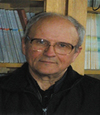
Biography:
Abstract:
Prenatal development of man, some monkeys of old world and of rodents take places surrounded by decidual cells (DC). DC form around fetus special type of tissue named decidua patietalis and decidua basalis. Decidualization of endometrium is obligatory condition for fetus development. Decidua controls the growth of fetuses and progress of pregnancy. The immediate precursors of main types of decidual cells is not characterized yet. There are demonstration of bone marrow origin of large decidual cells (LDC) and of metrial granulated cells (Kearns, Lala, 1982; Peel et al., 1983; Bulmer and Sunderland, 1984). The precursors of LDC also observed under uterine epithelium during rat and human implantation (Galassi, 1968; Mikhailov, 2003). Decidua is turnover type of cell population. In accord with flow cytometry the proliferative activity of human decidua parietalis of first pregnant trimester is near 3.5 ± 0.3%. Before birth the proliferative activity comes down up to 1.6 ± 0.2%. In case of mild and severe preeclampsia the level of proliferating cells decreases up to 1.1±0.2 % and 0.45 ± 0.2% accordingly. Severe preeclampsia is also characterized by prominent abnormality of DC DNA content and by decrease of decidua thickness. It means that DC loss are not compensated by precursors or by stem cells proliferation at severe preeclampsia (Mikhailov et al., 1992). To maintain the point of view for bone marrow stem cells as source of precursors for DC we studied the influence of rat bone marrow cells (BMC) transplantation on rat fetus development and pathological changes of pregnancy course. BMC were prepared from bone marrow of pregnant rats and injected intra vein of pregnant rat of the same date of pregnancy immediately. The state of fetuses was controlled at 18th day of pregnancy. It was shown that transplantation of BMC of pregnant rats into pregnant rats of the same date of development is not provided by teratogenic effects. At the same time there is increase of size of the fetuses in case of BMC transplantation during implantation (6-9 days of pregnancy) and by retardation the fetuses growth in case of BMC transplantation during placentation (11-12 days of pregnancy). The increased size of fetuses after BMC transplantation during implantation may be explained by positive paracrine effect of transplanted allogenic BMC for growth of fetuses as consequence of increased decidua growth. Early we had observed that rat BMC transplantation to pseudopregnant rats increased the sizes of rat decidual tissue (Domnina et al., 2014). The retardation of growth of rat fetuses can be also achieved by injections of rabbit anti-kidney or anti-decidua anti-serums. (Mikhailov, 1967). The work was supported by Grant RFBR # 14-04-00259-a and by MCB RAS program.
Mahshid B. Ansari
Shahid Chamran University
Iran
Title: Kinetic characterization of malate dehydrogenase in normal and malignant human breast tissues
Time : 12:15-12:35

Biography:
Abstract:
Background: Aerobic glycolysis rate is higher in breast cancer tissues than adjacent normal tissues in order to supply ATP, lactate and anabolic precursors needed for tumourgenesis and metastasis. High aerobic glycolysis requires NAD as a vital cofactor in order to guarantee its flow. Malate dehydrogenase (MDH) as an important enzyme in cancer metabolism could be a source of NAD beside to famous LDH to allow the continued functioning of glycolysis even in the absence of oxygen. Enzyme kinetic characteristics are related to environment-involved the enzyme and tumor microenvironment has distinct features relative to adjacent normal tissues. The aim of current study was to elucidate the kinetic parameters of MDH in human http://stemcell.conferenceseries.com/ by considering two points of views; the probable role of MDH in supporting of NAD pool and the effect of diverse tumor microenvironment on kinetic enzyme. Methods: MDH activity was measured from crude human breast tumors and normal tissues, which were obtained directly from operating room. The Michaelis-Menten constant (Km) and maximum velocity (Vmax) was then determined in the crude extracts. Results: Tumor MDH affinity in forward reaction was same as normal MDH but Vmax of cancerous MDH was higher relative to normal MDH. In reverse reaction, affinity of tumor MDH for malate and NAD+ was lower than normal MDH. Conclusions: The lower MDH affinity for malate and NAD+ is a valuable tool for preserving NAD and malate by cancer cells in order to use them in other pathways such as glycolysis and malate decarboxylation to pyruvate. The increasing MDH affinity for malate and decreasing the MDH activity and expression in forward reaction may be a valid molecular target to abolish its probable effect on tumourgenesis also kinetic characteristics of MDH could be a novel diagnosis parameter for human breast cancer.
John Yu
Chang Gung Memorial Hospital , Institute of Stem Cell & Translation Cancer Research,
Taiwan
Title: Harnessing Novel Biomarkers of Human Embryonic Stem Cells for Cancer Diagnosis and Therapy
Time : 12:35-12:55
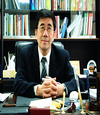
Biography:
Abstract:
Human embryonic stem cells (hESCs) are defined as a group of cells at the preimplantation stage of embryo, with the capacity for self-renewal and differentiation to generate different types of cells and tissues. Cancer stem/initiating cells (CSC) also possess the capability of stem cells to multiply and differentiate into their progenies, display resistance to chemotherapy and radiation therapy, and could be the root cause for relapse and metastasis of cancerous tumors. On the cell surface, more than 85% of proteins are glycosylated. Recent studies indicated that glycosphingolipids (GSLs) are ubiquitous components of cell membranes and, similar to surface glycoproteins, can act as mediators of cell adhesion and signal transduction. Therefore, a systematic survey of expression profiles of GSLs and glycoproteins in hESCs and various differentiated derivatives was carried out. Based on MALDI-MS and MS/MS analyses, we have found a number of unique expressions of GSLs in the undifferentiated hESCs and induced pleuripotent stem (iPS) cells, and also a close association of the GSL expressions in hESCs and iPS cells with differentiation. On the other hand, Globo H, a known biomarker for cancers, was highly expressed uniquely in undifferentiated hESCs and iPS cells. This and other ESC signatures unique for hESCs and iPS cells will perhaps be the targets of therapy for cancers. In addition, we had also employed glycoproteomics and glycan analysis to analyze the expression of sialylated N-glycoproteins for hESCs. We have identified seven newly found surface N-linked sialoglycoproteins that are expressed abundantly in hESCs prior to differentiation and their expression levels are many folds higher in breast cancer CSC as compared to non-CSC. For example, silencing of ESC02 leads to decrease in cell proliferation of hESCs and mammary sphere formation of breast cancer, leading to cell arrest. In addition, loss-of-function of ESC02 results in developmental skewing toward endoderm/mesoderm differentiation in vitro and in vivo. These findings warrant the development of ESC02 as target for new therapy. Furthermore, ESC02 sheds to the plasma, resulting in higher level of auto Abs detected in patients with breast cancer. The area under receiver operating characteristic curve (ROC) for these auto Abs in patients was 0.86, indicating excellent discrimination for cancer diagnosis. Therefore, these newly found GSLs and glycoproteins present in hESCs and iPS cells could be candidates for cancer diagnosis and glycan-targeted therapy of tumors.
George G Chen
The Chinese University of Hong Kong
China
Title: Thromboxane in smoking-induced lung carcinogenesis – potential new pathways for intervention
Time : 12:55-13:15
Biography:
George G Chen is a professor in the Department of Surgery, Director of Surgical Research Laboratories, the Chinese University of Hong Kong, China. He is also served as a principle investigator at the Hong Kong Cancer Institute. He has extensive experience in cancer research, particularly in the area of hepato- and lung-carcinogenesis. He has authored or co-authored more than 180 papers and has written a number of books or book chapters. He is currently a member of editorial boards or a guest editor of a number of scientific journals and a regular peer-reviewer for several grant agents.
Abstract:
As a leading cancer in the world, 85-90% of lung cancer cases are attributable to cigarette smoking directly or indirectly. Though cigarette smoking is preventable, the incidence of tobacco smoking remains very high in some parts of the world and such a situation is likely to remain in the foreseeable future due to sociocultural factors and other issues. There is not an effective treatment that is specially developed for smoking-related lung cancer, contributing to the high mortality of this malignancy. Using cultured lung epithelial cells, human lung cancer tissues, and the mouse lung tumor model, we studied roles of thromboxane A2 (TXA2), thromboxane synthase (TXS) and its receptors (TPa and TPb) in smoking-induced lung tumorigenesis and analyzed potential molecules for targeting therapy against this cancer. We have detailed how the involvement of TXS and TXA2 in smoking-induced lung cancer cell proliferation, growth, resistance to apoptosis, and we have identified a novel auto-regulatory feedback loop for TPα activation. We conclude that smoking promotes lung tumor growth via inducing TXS and TPα, which constitutes an auto-positive feedback loop to exaggerate the growth. Therefore, TPα and TXS appear to be the ideal targets against smoking-related lung cancer.
Kevin Murray
BioSpherix, Ltd
USA
Title: Better Manufacturing Practice for Cell Therapies
Time : 14:00-14:20

Biography:
Kevin Murray, VP Global Sales for BioSpherix, Ltd. BS BioChemistry, MBA Finance & Marketing, 20+ Years experience in the Pharmaceutical/Biotech/Medical Research Industry.
Abstract:
The Xvivo GMP platform reduces risk and provides superior process control for the culture, processing, and expansion of cell-based therapeutics. Total isolation protects the cells from possible contamination, the people from viral vectors, prions…as well as allow for the optimization of the cell environment. Critical cell environmental factors such as temperature, RH, CO2 and O2 can be controlled, monitored and uninterrupted throughout the entire cell production process. Dynamic incubation options allow for adjustments in incubation conditions which keep up with the changing needs of dynamic cell cultures. Superior process control results in a higher quality cell product and more consistent results for your entire protocol.
Shivdas G Nanaware
D. Y. Patil University
India
Title: Platelet cell based therapy: an excellent wound healing medicine
Time : 14:20-14:40
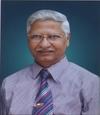
Biography:
Prof.Dr.Shivdas Ganpati Nanaware is a Dean, Faculty of Interdisciplinary studies and Co-ordinator, Stem Cell and Regenerative Medicine Department at Center for Interdisciplinary Research, D.Y.Patil Unviersity, Kolhapur, Maharashtra,India. Prof. Nanaware completed his Ph.D. at the age of 30 years from Shivaji University Kolhapur.After completion of his Doctorate he has served in the same University as a Professor and Head, Department of the Zoology for 35 years. Prof.Nanaware has a unique combination of rich scientific research and administration experience. His research is related to cellular changes in response to water polluting toxicants, pesticides and plant derived bioactive compounds. His research work on crop distructive molluscan pest snails and slugs is well recognized by the researchers working in Malacology.He has developed a “Confirmatory Metachromatic Histochemical Technique for the detection of unusual Polysaccharide, Galactogen” in animals. He has published more than 60 papers in reputed generals and has guided 20 research scholars for their M.Phil. and Ph.D. degrees. He is a member of editorial boards of many Journals of cell and tissue research. He has attended several national and international conferences in India and abroad. Prof.Nanaware is a life member of many professional societies. He has received several awards and honors in recognition of his meritorious research work. He is a recipient of Best Teacher Award, Govt. of Maharashtra and Shivaji University, Kolhapur. He is also a Gold Medal Awardee of Academy of Environmental Biology. Dr.Nanaware has interest in many branches of Zoology, Toxicology, Neurobiology, Cell biology Stem Cell and Regenerative Medicine and Clinical Application of Cell Therapy.
Abstract:
The wound management forms an important part of the medical and pharmaceutical concern worldwide. Many methods were traditionally used to cure wounds including dressing with natural or synthetic bandages such as cotton, wool, lint and gauzes, and the extracts of plant parts, oils and ghee. The effective wound management depends on understanding a number of different factors such as the type of wound, the healing process , condition of the wound in terms of health and infection ( e.g. diabetic) environment and social setting and the physical and chemical properties of the available dressings. In recent advances it has been proved that the platelets, one of the blood cellular elements, play important role in the wound healing mechanism both in wounds and non-healing diabetic wounds. Platelet cells are practically involved in every event of the wound healing cascade including homeostasis, proliferation, remodeling and cell signaling. Platelet cell growth factors like PGDF, TGF Alfa , TGF Beta and EGF help in chemotaxis, fibroblast proliferation, collagen production and metabolism, epithelial cell proliferation and granulation and tissue formation related functions in wound healing. With the development of platelet cell based procedures at our center such as use of activated platelets, platelet riched plasma (PRP), polymer based scaffolds of Polyvinyl alcohol (PVA) and Polyethylene glycol (PEG) and their combinations have showed dramatic and interesting changes during wound healing. Our efforts in developing the human skin engineering, cellular matrices and cell based therapies are in progress to improve perfect wound healing process. We hope that the potential application of these technologies will be helpful to the people with wounds in general and non-healing diabetic wounds in particular in the near future and will insure rapid and complete healing key strategy for the wound management.
Abdelhakim Mohamed Safwat
Al-AZHAR University Egypt
Title: Stem Cell Therapy In Cases Of Retinitis Pigmentosa
Time : 14:40-15:00

Biography:
Dr Abdelhakim Mohamed Safwat , Medicine doctor , now is Assistant lecturer of ophthalmology department, Al-Azhar Univ. Member in Egyptian society of ophthalmology (EOS) , Egyptian vetrioretinal society. He got B Sc in medicine 2003, master in ophthalmology (treatment modalities in age related macular degeneration), and diploma in uses of laser in medicine. His working experiences: internship in Al-Azhar Univ. hospitals for one year , resident in ophthalmology department for 3 years , fellow in international eye hospital for 3 years and assistant lecturer up till now . His studies focus on regenerative medicine in ophthalmology mainly age related macular degeneration and retinitis pigmentosa .Scientific activities: speaker in international neuropsychatric conference of Alexandria University, annual conference of clinical pathology department of Cairo University, Egyptian vitreoretinal society meeting 2014, international conference of stem cell and nanotechnology of Ainshams University , stem cell scientific meeting in national institute of research and 2nd annual world congress of geriatrics and gerontology 2014 .
Abstract:
Retinitis pigmentosa is a common label for a heterogeneous group of heritable retinal degenerative diseases that result in progressive visual loss secondary to photoreceptor cell death. Of the 2 photoreceptor cell types in retina (Rods and cones), these diseases primarily affect rods; the cones die an “innocent bystander” death. This is reflected in the natural clinical course of retinitis pigmentosa, which usually begins with loss of rod-mediated night vision and Advances over the years with progressive loss of the peripheral visual field and, ultimately, the loss of central, cone-mediated vision. There is concomitant attenuation of the retinal vasculature. It is thought that vascular loss follows decreased metabolic demand by the photoreceptors. Currently no definitive treatment for retinitis pigmentosa exists, although nutritional approaches may slow some forms of this disease. Mesenchymal stem cells (MSCs) are progenitors of all connective tissue cells. In adults of multiple vertebrate species, MSCs have been isolated from BM and other tissues, expanded in culture and differentiated into several tissue-forming cells. A number of studies have shown that bone-marrow-derived MSCs can differentiate into cells expressing photoreceptor proteins. In this study we compare between two types of stem cells to restore vision in RP patients . Results are compared according to visual outcome, investigations and complications. Finally the use of stem cell is useful in cases of retinitis pigmentosa and may be other retinal dystrophies.
Elena R. Andreeva
Institute of Biomedical Problems
Russia
Title: Activated Leukocytes Alter Allogeneic Multipotent Mesenchymal Stromal Cell Functions
Time : 15:00-15:20
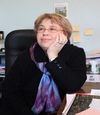
Biography:
Dr. Elena R. Andreeva received her PhD at Russian Cardiology Research Center in 1996. She is Leading Reseach Scientist in Cell Physiology Lab in the Institute of Biomedical Problems of Russian Academy of Sciences. The field of her scientific interests: cell physiology of stem and progenitor cells, cellular and molecular mechanisms of adaptation, cell-to-cell interactions. Dr. Andreeva has published more than 60 papers in Russian and International Journals. She is a Member of Russian Atherosclerosis Society, International Atherosclerosis Society.
Abstract:
Multipotent mesenchymal stromal cells (MSCs) have been assumed as a perspective tool for allogeneic application in cell therapy due to their immunotolerance. Recent findings reveal that MSCs are not totally invisible for host immune system but rather possess immuno-evasive properties. Here we evaluated the direct cell-to-cell and paracrine effects of PHA-activated mononuclear cells (MNCs) from peripheral blood on allogeneic MSCs at standard (20%) and tissue-related (5%) O2 levels. Interaction with MNCs had no effect on MSC stromal phenotype, but significantly increased soluble and membrane-associated ICAM-1 expression. Upon direct contact MNCs modulated the functional activity of MSCs: the viability of MSCs with elevated ROS was reduced. ROS formation, mitochondrial trans-membrane potential and lysosome activity were increased. MSC proliferation and differentiation was slowed down. Paracrine regulation of MNC/MSCs interaction did not affect MSC intracellular parameters, but suppressed its migration. The global gene expression analysis showed that MSCs were more sensitive to the MNCs at 20% O2. MSC "proinflammatory" activation was associated with increased expression of IL-8, CCL5,IL-1b,COX-2. MCP-1,IL-1b,TRAF3IP2 were up regulated, and IL-8,COX-2,IL-7R – down regulated at 5% O2 in comparison with 20% O2. Upon interaction with MNCs the up-regulation of "immunosuppressive" genes: HLA-B,-E,-F,-H, PTGIS, TGFBI, LIF, PTGS2 was detected. Increased expression of genes whose products provide MSC proliferative activity, extracellular matrix remodeling (MMP1,MMP3) were also demonstrated. These data indicate that the interaction with MNCs significantly altered MSC gene profile and functional activity that can further facilitate the MSC participation in regenerative processes in tissues.
Sribatsa Kumar Mahapatra
VIMSAR
India
Title: Autologus stem cell applications in refractory leg ulcers
Time : 15:20-15:40
Biography:
Professor Sribatsa Kumar Mahapatra completed his M.B.B.S.with Honours from M.K.C.G.Medical College,Berhampur(gm),Odissa,India in1977 later got his M.S. in General Surgery from Post Graduate Institute of Medical Education and Research, Chandigarh, India in 1982 and obtained his F.R.C.S.from Royal College of Surgeons of Edinburgh in 1994. Presently he is working as Professor and Head of the Dept.of General Surgery at VIMSAR Sambalpur, Odisha with teaching, treatment and research activity. In a busy 1200 bed hospital he has published many papers on cell therapy in national and international journals.
Abstract:
Chronic non healing ulcers of lower limb due to diabetes, sickle cell disease, peripheral vascular disease, hansens disease, burns and venous ulcers which are refractory to conventional treatment are tried with autologus bone marrow derived mesenchymal stem cell therapy. Ulcer healing was then observed with control group of similar type of ulcers where only conventional ulcer therapy was tried. The progress of ulcer healing was then observed by appearance of good quality granulation tissue, marginal epithelial migration and ulcer contraction in stem cell applied ulcers in contrast to control group
Maryam Eslami
Vice President of Azad Paramedical School
Title: Collagen 1 and Elastin Genes Expression of Mitral Valvular Interstitial Cells in MicroFiber Reinforced Hydrogel
Biography:
Abstract:
The incidence and prevalence of heart valve disease is increasing worldwide and the number of heart valve replacements is expected to increase significantly in the future. By mimicking the main tissue structures and properties of human heart value, tissue engineering offers new options for the replacements. Applying an appropriate scaffold in fabricating tissue engineered heart valves (TEHVs) is of importance since it affects the secretion of the main extracellular matrix (ECM) components, collagen and elastin, which are crucial for providing the mechanical, elastic and tensile strength of TEHVs. Using Real Time PCR, the relative collagen and elastin genes expression levels obtained for three samples of each examined valvular interstitial cells (VICs)-seeded scaffolds including PGS-PCL microfibrous scaffolds, Gelatin and Hyaluronic acid based hydrogel-only and the composite (consists of PGS-PCL and hydrogel) scaffolds. Statistical analysis was performed using one way ANOVA with the significance level of P < 0.05. Our results showed that the level of relative expression of collagen and elastin genes was higher in the VICs-seeded composite scaffolds compared to PGS-PCL-only and hydrogel-only scaffolds and the difference was statistically significant (P < 0.05). The maximum difference of elastin and collagen genes expression was between the composite scaffold and the hydrogel-only scaffold, with the most and the least quantity, respectively. The VICs-seeded composite scaffold were observed to be more inductive to ECM secretion over the PGS-PCL-only and hydrogel-only scaffolds. This composite scaffold can serve as a model scaffold for heart valve tissue engineering with the capability of providing the necessary mechanical-properties such as, elasticity and tensile strength and the ability to grow, repair and be remodelled as a tissue.
Reinaldo Geraldo
Federal University of Juiz de Fora
Brasil
Title: Platelet Activity: The assessment profile in patients with sicle-cell hemoglobinopathy and the antiplatelet potential of synthetic compounds.
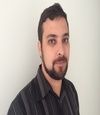
Biography:
Reinaldo Barros Geraldo is a young scientist, researcher currently postdoc at Federal University of Juiz de Fora (Brazil). Graduated in Biomedicine Fluminense Federal University (2007), Master of Neuroimmunology, Fluminense Federal University (2009) and Doctor of Science by Federal University of Rio de Janeiro (2013). Has experience in the areas of biochemistry, with an emphasis on computer modeling, acting on the following subjects: Comparative modeling, structural biochemistry and Molecular Biology. At now, he has published 11 papers in reputed journals.
Abstract:
Platelets and erythrocytes are blood elements involved in important pathologies such as the hemoglobinopathies, thrombosis and occlusive processes, and they may be both correlated to them. The treatment of these pathologies is a science purpose as the current options present risks and collateral effects. This work purpose was to produce a review about platelets and erythrocytes and their participation in some pathology, also describing a brief study about these elements and a hemoglobinopathy patient. We also identified some molecules with an antiplatelet profile on rabbit blood from three new acylhidrazones and pirazole-piridine serie synthetized by Alice Bernardino and Vitor Ferreira groups from Instituto de Química da UFF (Labiomol AM serie) and Luiza Dias e Maria Abadia Di Vaio groups from Faculdade de Farmácia da UFF (Labiomol LHa e Labiomol LHb serie), using ADP, arachidonic acid and collagen as agonists. The LabiomolLHa serie was the most promising on platelet assay induced by arachidonic acid, where Labiomol LHa 41, 43, 62, 65, 66, 67 e 130 compounds were able to totally inhibit the platelet aggregation.
- Genetics, Bioinformatics and Computational Biology
- Young Research Forum
Location: Barcelona Room
Session Introduction
Ji-Hye Jung
Korea University
Korea
Title: Novel role for CXCR2 in human pluripotent stem cells
Time : 15:55-16:10

Biography:
Ji-Hye Jung is a Ph.D student at the Department of Biomedical Science, Graduate school of medicine, Korea University, Korea. She has interest and experiences in Human embryonic stem cells (hESCs), induced pluripotent stem cells (iPSCs) and Adult stem cells and published her study on SCI journals. Currently, she focused on the mechanisms of self-renewal and differentiation in hESCs and iPSCs.
Abstract:
Basic fibroblast growth factor (bFGF) is a crucial factor sustaining human pluripotent stem cells (hPSCs). We designed this study to search the substitutive factors other than bFGF for the maintenance of hPSCs by using human placenta-derived conditioned medium without exogenous bFGF (hPCCM-), containing CXCR2 ligands including IL-8 and GROα, which was developed on the basis of our previous studies. Firstly, we confirmed that IL-8 and/or GROα play independent roles to preserve the phenotype of hPSCs. And, we tried CXCR2 blockage of hPSCs in hPCCM- and verified the significant decrease of pluripotency-associated genes expression and the proliferation of hPSCs. Interestingly, CXCR2 suppression of hPSCs in mTeSR™1 containing exogenous bFGF decreased the proliferation of hPSCs with maintaining pluripotency characteristics. Lastly, we found that hPSCs proliferated robustly for more than 35 passages in hPCCM- on a gelatin substratum. Our findings suggest that, CXCR2 and its related ligands might be novel factors comparable to bFGF supporting the characteristics of hPSCs and hPCCM- might be useful for a unique feeder-free humanized culture system supporting hPSCs maintenance as well as for the accurate evaluation of CXCR2 role on hPSCs without the confounding influence of exogenous bFGF.
Basmah AlTinawi
Alfaisal University
Title: Hydroxybenzoic acid isomers and the cardiovascular system
Time : 16:10-16:25
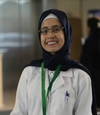
Biography:
Bamsah AlTinawi, Third year Bachelor of Medicine, Bachelor of Surgery student at Alfaisal University, Riyadh KSA. She is involved in research since her first year in medicine and has three published papers in well-respected journals: Nutritional Journal, Austin Anatomy Journal and Medical Teacher. Worked with Dr. Paul Ganguly, Dr. Bernhard Juurlink, on DHBA using Chromatography techniques “HPLC” with EC system. She went to (University of Mississippi Medical Center) UMMC, USA 2013 worked in a basic genetic with Dr.Michael R. Garrett on MHY15 gene location. Curently, she is the research head in a cancer support group “SMILE, You Are Blessed” and starting a clinical research project in KFSH.RC, King Faisal Specialist Hospital and Research Center with Dr. Fatimah S. Alhamlan, working on AU campus labs with Dr. Ahmed Yaqinuddin on the miRNA in blood for differential diagnosis of different types of cancer. In 2014, she had done summer electives in KFSH, KSA in Cardiac surgery under mentorship of Dr. Zohair Al Halees, a well-known figure in Cardiac surgery in the world. She is active in many extracurricular activities and is part of leading initiatives in volunteering and community service teams such as "The Change Team", the Medical Student Association of Alfaisal University.
Abstract:
Today we are beginning to understand how phytochemicals can influence metabolism, cellular signaling and gene expression. The hydroxybenzoic acids are related to salicylic acid and salicin, the first compounds isolated that have a pharmacological activity. In this review we examine how a number of hydroxyphenolics have the potential to ameliorate cardiovascular problems related to aging such as hypertension, atherosclerosis and dyslipidemia. The compounds focused upon include 2,3-dihydroxybenzoic acid (Pyrocatechuic acid), 2,5-dihydroxybenzoic acid (Gentisic acid), 3,4-dihydroxybenzoic acid (Protocatechuic acid), 3,5-dihydroxybenzoic acid (α-Resorcylic acid) and 3-monohydroxybenzoic acid. The latter two compounds activate the hydroxycarboxylic acid receptors with a consequence there is a reduction in adipocyte lipolysis with potential improvements of blood lipid profiles. Several of the other compounds can activate the Nrf2 signaling pathway that increases the expression of antioxidant enzymes, thereby decreasing oxidative stress and associated problems such as endothelial dysfunction that leads to hypertension as well as decreasing generalized inflammation that can lead to problems such as atherosclerosis. It has been known for many years that increased consumption of fruits and vegetables promotes health. We are beginning to understand how specific phytochemicals are responsible for such therapeutic effects. Hippocrates’ dictum of ‘Let food be your medicine and medicine your food’ can now be experimentally tested and the results of such experiments will enhance the ability of nutritionists to devise specific health-promoting diets.
Evelyn M. Jiagge
University of Michigan Health System
USA
Title: Multiethnic triple negative breast cancer comparisons of gene expression shows enrichment of distinct pathways in ALDH1+ compared to CD44+/CD24-/EpCAM+ cancer stem cell populations
Time : 16:25-16:40

Biography:
Dr. Evelyn M. Jiagge is a physician scientist with a translational focus on integrating molecular genetics of aggressive breast cancer of women with African ancestry with fundamental studies of cancer signal transduction. She observed during her practice as a surgeon in Ghana, that breast cancer patients presented with very aggressive tumors that did not respond to current therapy. With the help of her mentors, Drs Wicha, Merajver and Newman, she is pursuing a PhD in cancer Biology at the University of Michigan. Her research focuses on ‘the contribution of African ancestry and breast cancer stem cells to aggressive breast cancers’.
Abstract:
Triple negative breast cancers (TNBC) constitute a heterogeneous group with relatively poor outcome and increased prevalence in women of African descent. There is emerging evidence that a subpopulation of breast cancer cells, termed breast cancer stem cells (BCSC), has the unique ability of self-renewal, and may contribute to treatment resistance and metastasis. We therefore sought to determine whether the poorer breast cancer outcome for women of African descent related to molecular alterations in their BCSC populations. To accomplish this, we analyzed subpopulations of cells previously found to exhibit stem-like characteristics of self-renewal, within each tumor in order to delineate the heterogeneity of gene expression patterns in different subpopulations of cells within tumors of patients of diverse ethnicities. Based on previous work, we hypothesized that there are distinct sub populations of BCSC, which exhibit distinct signaling pathway enrichment that may confer to TNBCs their highly metastatic and drug resistant characteristics. We developed PDX models from TNBC of 5 Ghanaian, 5 African American and 5 Caucasian patients. We collected bulk cells from the PDXs and used fluorescence-activated cell sorting (FACS) to select and collect ALDH+ cells and CD24 CD44+EpCAM+ cells. We extracted RNA from the sorted cell populations and performed RNA-sequencing using the Illumina Next Generation Sequencing platform. Our results showed that the bulk, ALDH1+ and CD44+ populations within each tumor segregate closely together, and we noted no distinct ethnic separation when we performed the analyses either of the bulk or special subpopulations. Upon centering on the mean for each sample in each tumor, thereby abrogating differences between individual tumors, we observe a significant separation between the ALDH1+ and the CD44+/CD24- sub populations. In particular, the following pathways are most differentially enriched in these subpopulations; the numbers between parentheses indicate the numbers of genes significantly altered that contribute to each pathway. ALDH1+ : Wnt (10), MAPK (13), axon guidance (6), GnRH signaling (7), TGFbeta (9), endocytosis(5). CD44+/CD24-/EpCAM+: tRNA synthesis (5), N-glycan biosynthesis (7) and RNA degradation (6). We are now focusing on additional experiments to verify whether the above pathways are indeed active in these subpopulations and we are exploring their biological significance in regards to tumor growth and metastases. Although we did not detect any specific clustering of tumors by ethnicity, our work suggests the presence of an ALDH1+ subpopulation of cells that exhibit characteristic enrichment of pathways distinct from those enriched in CD44+/CD24- /EpCAM+ cells.
Daniel Markeson
University College London
UK
Title: Adipose mesenchymal stem cells and peripheral blood endothelial colony forming cells for tissue engineering
Time : 16:40-16:55

Biography:
Dan Markeson is a plastic surgery resident based in Manchester, UK. After undertaking a BSc (Hons) in neuroscience at the University of Birmingham, he completed his MBBS medical degree at University College London (UCL). He then trained in renowned London hospitals and undertook surgical training in Oxford before starting his plastic surgery residency in Manchester, UK. He has published 12 peer-reviewed articles and his interest in research led to him completing a research MD at UCL aged 32 in which he fabricated a novel collagen-based scaffold containing vascular networks using stem and progenitor cells derived from adult fat and blood.
Abstract:
Objectives: The synthetic replacement of full thickness skin is suboptimal both aesthetically and functionally. We aimed to improve upon existing dermal substitutes for wound healing by using adult-derived stem and progenitor cells to form blood vessels within fabricated scaffolds. In so doing, the goal was to improve the trajectory of wound healing since expeditious maturation has been suggested to improve outcomes. Methods: Endothelial colony forming cells and mesenchymal stem cells were isolated from adult peripheral blood (PBECFC) and adipose tissue (AdMSC) and characterized. The PBECFCs were compared to cord blood and umbilical vein derived ECFCs for chemokinesis and chemotaxis within collagen and fibrin gels and using this data we fabricated collagen gels containing ECFC and AdMSCs co-cultures. Tubule parameters from gels were calculated using confocal microscopy and Imaris 3D software and optimized pre-vascularized gels were scaled up and compared to empty gels within an immunodeficient murine wound model. Results and conclusions: We demonstrated that autologous adult-derived stem cells could be used to fabricate a pre-vascularized scaffold that enhanced wound to host integration with significantly more tubules noted at 7 days within our optimized pre-vascularized scaffolds than standard gels in vivo (p=0.04). Our research could pave the way for improved graft take and appearance in full-thickness wound repair and lays the foundations for a world where split skin grafting following trauma or malignancy will no longer be necessary.
Rosalba Camicia
University of Zurich
Switzerland
Title: B-aggressive lymphoma proteins BALs and IFNγ /STAT signaling pathway: new drug targets in highly chemo-resistant tumors
Time : 16:55-17:10

Biography:
Dr. Rosalba Camicia has completed her PhD at the age of 26 years from University of Zurich, International Graduate School in Life Science, and postdoctoral studies from Oxford University Radcliffe Department of Medicine. She was visiting scientist at the Department of Bioengineering and Applied Science (DEAS), Harvard University, Cambridge, Ma, USA where she helped to develop a new method of molecular drug delivery from electro-polymerized micro- and nano-patterned surfaces. She has published 6 papers in reputed journals and has been serving Zurich Cancer Network, European Association for Cancer Research (EACR), University of Oxford Club and NHS Trust as a member.
Abstract:
The B-aggressive lymphoma proteins BALs have been recently identified as a risk-related gene product in aggressive diffuse large B-cell lymphoma (DLBCL) and Prostate cancer (PCa). BALs are constitutively expressed in a subset of high-risk DLBCLs with an active host inflammatory response and have been suggested to be associated with interferon-related gene expression. We have previously demonstrated that BAL1 acts as a novel oncogenic survival factor in high-risk, chemo-resistant, diffuse large B cell lymphoma (DLBCL) (Camicia R. et Al, JCS 2013) and in metastatic PCa (Bachmann et Al., Mol Cancer 2014). Our study provides first evidence that the enzymatic activity of BALs is required for survival of diffuse large B cell lymphoma (DLBCL) and mPCa cells. Our results show for the first time that BAL1 represses the anti-proliferative and pro-apoptotic IFNγ-STAT1-IRF1-p53 axis and mediates proliferation, survival and chemo-resistance in DLBCL and mPCa. As a consequence constitutive IFNγ-STAT1 signaling does not lead to apoptosis but rather to chemo-resistance in tumors overexpressing BALs. The present study further suggests that the combined targeted inhibition of STAT1, BAL1 and BAL2 could increase the efficacy of chemotherapy or radiation treatment in DLBCL, prostate cancer and other high-risk tumor types with an increased STAT1 signaling.
Gary F Gerlach
University of Notre Dame, USA
Title: Modeling renal progenitor development using the zebrafish kidney
Time : 17:10-17:25
Biography:
Abstract:
Chronic kidney disease (CKD) affects 300 million people world-wide, representing the 12th leading cause of death1. Understanding how nephrons, the simplest functional unit of the kidney, develop from renal progenitors can lend insight into the processes that go awry during disease. The zebrafish pronephros provides an excellent in vivo system to study the mechanisms of vertebrate nephrogenesis. When and how renal progenitors in the zebrafish embryo undergo tubulogenesis to form nephrons is poorly understood, but is known to involve a mesenchymal to epithelial transition (MET) and the acquisition of polarity. We determined the precise timing of these events in pronephros tubulogenesis. As the ternary polarity complex is an essential regulator of epithelial cell polarity across tissues, we performed gene knockdown studies to assess the roles of the related factors atypical protein kinase C iota and zeta (prkcι, prkcζ). We found that prkcι and prkcζ serve partially redundant functions to establish pronephros tubule epithelium polarity. Further, the loss of prkcι or the combined knockdown of prkcι/ζ disrupted proximal tubule morphogenesis and podocyte migration due to cardiac defects that prevented normal fluid flow to the kidney. Surprisingly, tubule cells in prkcι/ζ morphants displayed ectopic expression of the transcription factor pax2a and the podocyte-associated genes wt1a, wt1b, and podxl, suggesting that prkcι/ζ are needed to maintain renal epithelial identity. Interestingly, knockdown of pax2a, but not wt1a, was sufficient to rescue ectopic tubule gene expression in prkcι/ζ morphants. These data suggest a model in which the redundant activities of prkcι and prkcζ are essential to establish tubule epithelial polarity and also serve to maintain proper epithelial cell type identity in the tubule by inhibiting pax2a expression. These studies provide a valuable foundation for further analysis of MET during nephrogenesis, and have implications for understanding the pathways that affect renal progenitors during kidney development, disease, and regeneration.
Alencar Kolinski Machado
Federal University of Santa Maria
Brazil
Title: Human adipose-derived stem cells obtained from lipoaspirates are highly cytogenotoxic susceptible to hydrogen peroxide
Time : 17:25-17:40
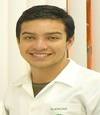
Biography:
Alencar Kolinski Machado is graduated in Biomedicine from Franciscan University Center (Brazil). He completed his master in Pharmacology at Federal University of Santa Maria (Brazil). Currently, he is PhD student in the Department of Pharmacology at Federal University of Santa Maria (Brazil) and University of Toronto (Canada). He is working with mitochondrial dysfunction, cellular metabolism as well as stem cells
Abstract:
Some evidences suggested that hydrogen peroxide (H2O2) can induce the proliferation, migration and regenerative potential on adult mesenchymal stem cells as well as on adipose-derived stem cells (ASCs) that could be useful to ASCs expansion in the therapeutic applications. However, the H2O2 could cause premature senescence in addition to DNA damage predisposing the cells to malignant transformation. Therefore, the present study evaluated the acute cytotoxic, oxidative and genotoxic effects of different concentrations of H2O2 on ASCs obtained from human lipoaspirates. ASCs were obtained, isolated and cultured. These cells were treated with concentration by 1-1000 μM of H2O2 during two hours. The cell viability was evaluated by cell culture-free double-strand (ds) DNA determination using Quant-iTTM ®PicoGreen dsDNA dye; apoptosis induction was analyzed from immunoassay measure of caspases 1, 3 and 8 levels; the analyses of oxidative stress in biochemical markers as well as the genotoxic effect by DNA Comet assay were also performed. All concentrations increased the cell mortality occurring 100% of mortality at >200 μM H2O2. The levels of 1, 3 and 8 caspases, Reactive Oxygen Species (ROS) and lipo peroxidation increased in a dose-dependent way in cells treated with <200 μM H2O2. The catalase levels also increased approximately 50% in cells exposed to H2O2 when compared to the control group. H2O2 concentrations >10 μM were genotoxic when compared to control group. The results suggest that ASCs obtained from processed human lipoaspirates are highly sensitive to H2O2 exposition and the survived cells might present important DNA damage that could affect its proliferative and differentiation capacity.
Chen Shen
George Washington University
USA
Title: On the interpretation of the recent Nobel Prize discovery of the
Time : 17:40-17-55

Biography:
Chen Shen received a BS degree in Software Engineering from Huazhong University, China, 2011. In the Spring of 2013, he got. an MS degree in Computer Science from the George Washington University. He made a master thesis on “Generalized Fibonacci Code” under guidance of Professor Berkovich. In the fall of 2013, he joined a startup company as an image processing engineer in Tennessee. At the same time, he did research on Big Data with Professor Berkovich and his student. Now, he is a PhD student of the GWU CS Department doing research under the advice of Professor Choi.
Abstract:
On the interpretation of the recent Nobel Prize discovery of the "internal GPS" in the brain and its possible implications for medical treatment John O’Keefe with May-Britt Moser and Edvard I. Moser have discovered a surprising phenomenon of the internal memory map in mice brains. It has been observed that some neurons fire when the tested animal moves over a particular area. In this work, we provide an interpretation of this effect based on a model of the brain suggested by S. Berkovich. For this purpose, we have arranged computer simulations of random walks of an artificial “mouse” with rate of recording determined by the time “mouse” spends in a given position. Then, some cutoff threshold was chosen, and according to the considered brain model the signal can be detected only above a certain threshold. The simulation outcomes resemble the obtained experimental results. The correctness of our concept can be verified by studying memory maps from various special forced deterministic movements of a real mouse. As long as the discovered phenomenon is real, it can provide a new approach to medical treatment. Apparently, macromolecule interactions are essentially determined by information signaling rather than merely by direct physical contact. So, medical drugs can be applied from outside using internal memory map of a pathological area of the organism. Most remarkably, the possibility of localized outside applications of drugs may reduce undesirable side effects, especially some detrimental consequences of chemotherapy in cancer.




